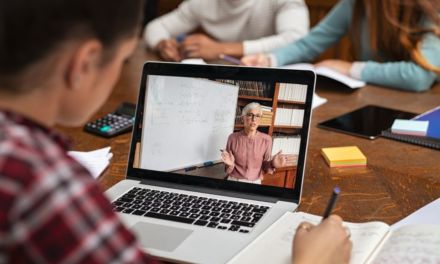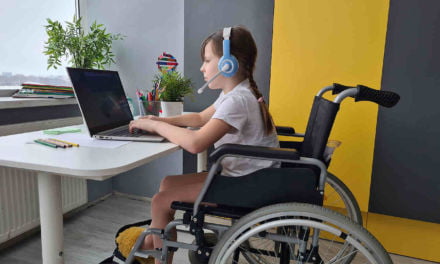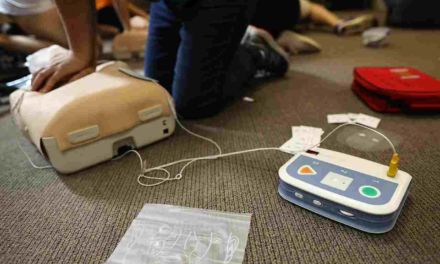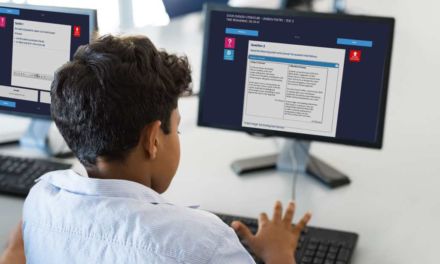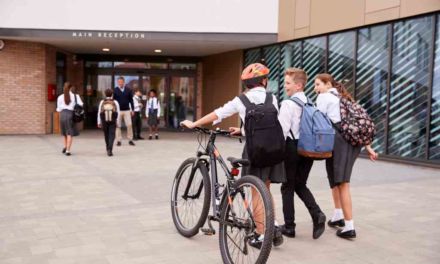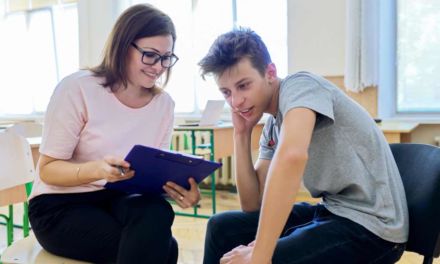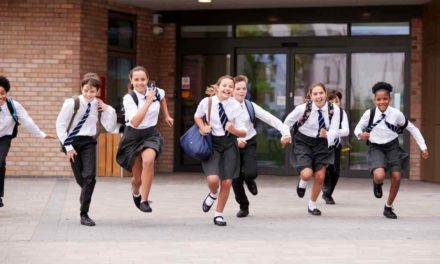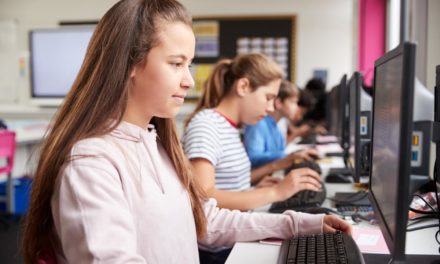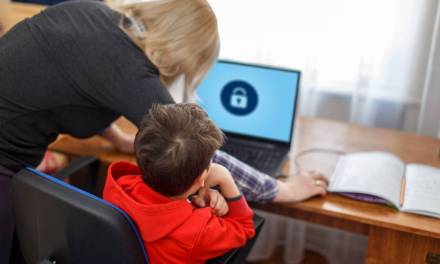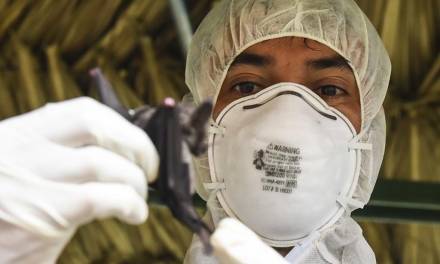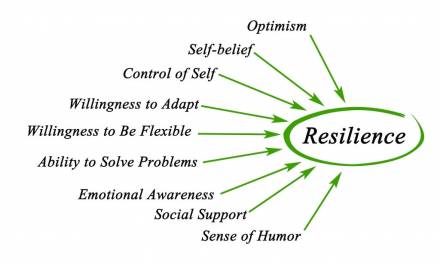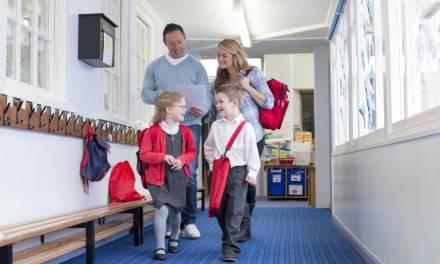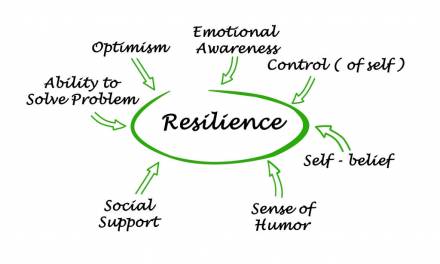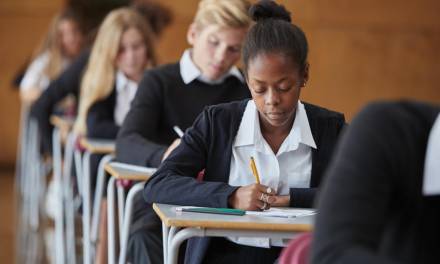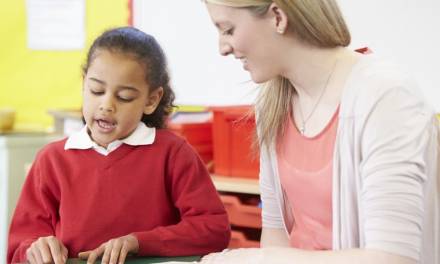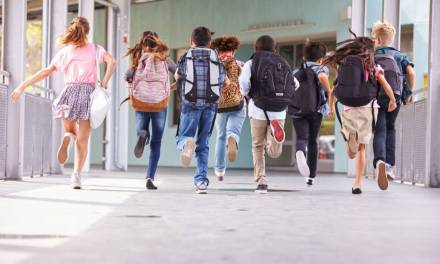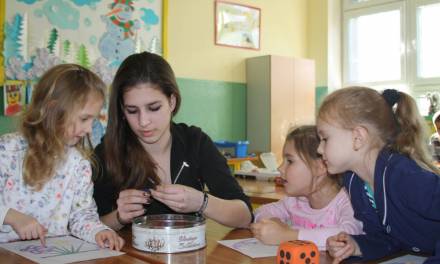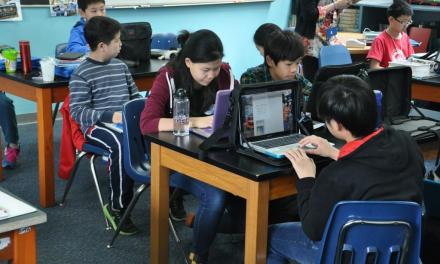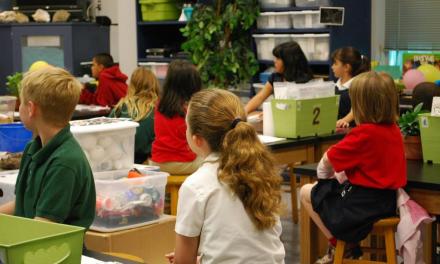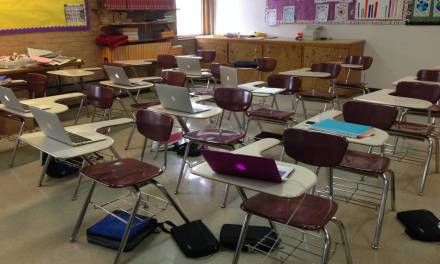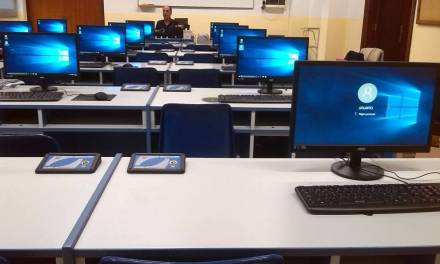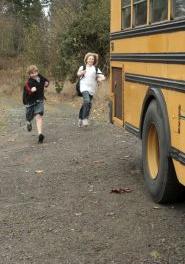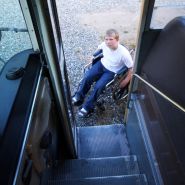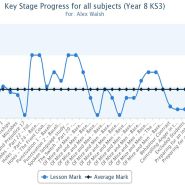
School Management
RECOMMENDED
SEND Needs: 6 Ways to Master Support for Pupils with Mild to Moderate Needs
Reading time: < 1 minute
Addressing Children Missing Education – The New Era
Reading time: 3 minutes
The landscape of alternative provision in England is undergoing a significant transformation. The new government guidance, “Children missing education: statutory guidance for local authorities and schools,” is now legally binding, marking a pivotal moment for educators and safeguarding professionals.
Read MoreDe-escalation Strategies: 7 Ways To Diffuse Difficult Situations
Reading time: 3 minutesEffective classroom management is a cornerstone of successful teaching, and...
Read MoreChallenging Behaviour & Understanding 5 Root Causes
Reading time: 2 minutes
Safeguarding Policies in Alternative Provision: 3 Things The Best Educators Need to Know
Reading time: 2 minutes
Alternative provision (AP) settings often support young people with complex needs, making safeguarding a paramount consideration. While sharing many similarities with mainstream schools, the unique challenges of AP require a tailored approach.
Read MoreThe Power of Positive Intervention: Discover Confidence and Motivation
Reading time: 2 minutesPositive intervention in schools is a powerful tool for enhancing...
Read MoreA guide to supporting autism in education
Reading time: 3 minutes
Autism can present various challenges for children and families, especially concerning education and development to adulthood. However, there are several avenues to explore that can implement supportive strategies to overcome barriers relating to autism.
Read More5 reasons early intervention is important for student well-being
Reading time: 3 minutes
Supporting students’ well-being is crucial if they are to have the best educational experiences and outcomes. We all know how difficult it can be to overcome mental health challenges, particularly for children in their developmental stages of life. But, we must support them as best as possible so they benefit long term.
Read More3 tips to reduce teacher workload and improve digital efficiency
Reading time: 4 minutes
Teachers are constantly under pressure to deliver high standards when educating children, but we sometimes forget about their well-being too. With the innovation of EdTech, we take a look at how you can implement better strategies to reduce teacher workload, improve digital efficiency and raise overall well-being.
Read More3 reasons reading is essential for development
Reading time: 3 minutes
The pandemic caused a massive loss in learning, particularly reading. Pupil’s mental health and well-being were also impacted and improving this will still take time. It’s crucial to support children’s development and aspirations and this can be initiated by implementing fundamental reading skills.
Read MoreHow to Foster Positive Learning, Engagement, and Well-being
Reading time: 3 minutes
Fostering a positive learning environment that drives engagement and supports well-being can be difficult, especially if there are other challenges surrounding the school. There could be limited time to focus on this aspect due to behavioural incidents or other areas that require more attention.
However, we must recognise the importance of creating a learning environment where a child will want to attend in the first place. If children are to fulfil their educational potential, we must provide a space where they feel safe and secure.
Read MoreHow to offer solutions to medically absent students
Reading time: 3 minutes
Students who are medically absent or have suffered a brain injury that prohibits them from accessing mainstream education need to have a variety of options to support their education. One option is to offer online learning that can supplement their education so they don’t fall behind.
Read MoreHow to build relationships with parents to fulfil potential
Reading time: 3 minutes
Forming meaningful relationships with parents to help drive the potential of their children can be a tricky route to navigate at times. Schools can find it challenging to form a bond and engage with parents which can leave children in a vulnerable position in terms of their attendance, behaviour and engagement.
Read MoreHow to encourage vulnerable children to engage in education
Reading time: 2 minutes
Finding a suitable solution for vulnerable children can be a difficult route to navigate on some occasions. Certain barriers can prevent them from engaging with their education, but what if there were strategies or methods you could implement to help foster a positive learning environment and drive engagement?
Read MoreHome education support success
Reading time: 3 minutes
Providing education support for children who struggle to attend school or have complex challenges can be difficult to navigate. However, there are suitable solutions out there that can assist with home education and implementing the right support for children.
EDClass had the privilege of speaking with the head of therapy and business development from Bibic, Chelsey Oxley to discuss why they have recommended the provider to parents who require an effective home education solution. Relating to Bibic’s services, Chelsey said:
Read More5 ways to support a child involved in county lines
Reading time: 3 minutes
Safeguarding children should be of paramount importance, but spotting the signs of why a child might be in danger of being involved in county lines can be tricky.
In this blog, we’ll explore what county lines are, the dangers and what you can do to effectively support your students who desperately need support.
Read MoreHow to build effective relationships with students
Reading time: 3 minutes
Building meaningful relationships can play a fundamental role in ensuring a student feels more confident in their academic ability and well-being. We must find common ground with students, parents and families so everyone involved can have better experiences in education.
How can we achieve this? In this blog, we’ll delve into strategies you can look at implementing to build effective relationships with your students.
Read MoreA way to support pathological demand avoidance (PDA)
Reading time: 3 minutes
Pathological demand avoidance (PDA) describes the notion of children’s reluctance to complete a task or attend school. PDA is prevalent with autistic children or those who are very pressure-sensitive or anxious.
Children with PDA may find it difficult to undertake a task, not because they do not want to, but because they find the demand overwhelming. How can we support these children and what strategies can we implement to overcome these challenges?
Read More5 ways you can improve safeguarding
Reading time: 2 minutes
Safeguarding students should be paramount within the education system. As stated in KCSIE 2023, safeguarding is everyone’s responsibility. Robust and stringent measures need to be implemented to ensure everyone involved in a school environment is protected and secured.
Jonathan Keay, Senior HMI stated:
Read MoreWhat to do if you are worried about your students
Reading time: 3 minutes
Caring for your students will come naturally as a teacher and you will only want the best for them and their educational experience. But, you also want to ensure that their home life is also steady so that they are safe and secure when they are not in school.
Everyone has the responsibility to safeguard a child and accommodate their needs. If you are worried about your students, for whatever reason, then you must find the core root as to why they might be behaving in a certain way or why they are absent on specific occasions.
Read More3 ways to create a positive classroom environment for reintegration
Reading time: 3 minutes
Students who experience barriers to their learning may sometimes find it difficult to engage with their education, subsequently resulting in loss of learning.
It’s important that students feel welcomed, be able to voice their opinions and flaunt their creativity whenever possible. By encouraging this and creating a positive classroom environment, students will feel more inclined to attend school and engage properly with their education. The school inspection handbook states:
Read MoreUsing an online platform to support anxiety
Reading time: 2 minutes
EDClass had a great discussion with specialist learning assistant, Katie Bullimore, from The Garibaldi School in Nottinghamshire to discuss why they chose EDClass to help support their students struggling with anxiety and other mental health issues.
Read MoreHow we can support children who have experienced trauma
Reading time: 4 minutes
Children who have been exposed to trauma or Adverse Childhood Experiences (ACEs) may exhibit certain behaviours or refuse to attend education. How can we overcome their barriers and what can we implement to support them?
EDClass spoke to Danny Wolstencroft, from Lads Like Us, who are safeguarding consultants going across the UK to discuss trauma-informed care to all types of professionals. Their goal is to inform professionals on how to effectively support children who have experienced trauma and what strategies we can implement to overcome barriers.
Read MoreA day in the life of an online teacher
Reading time: 6 minutes
Teaching as a whole has broadened, especially in recent years and online learning has opened up endless possibilities to help children reach their education potential. But, what does a day look like for an online teacher in comparison to a teacher in a mainstream school setting?
We thought it was a good idea to give you some insight into what teaching online is truly like from an online alternative provision perspective. Our maths teacher, Steph Lowes, sat down and discussed her day-to-day and the impact teaching online can truly have on transforming a child’s experience with education.
Read MoreHow to engage disenfranchised parents with their child’s education
Reading time: 4 minutesParents are a child’s first and most important teachers. When parents...
Read MoreHow online learning can help SEND students succeed in English, maths and science
Reading time: 2 minutes
Students with special educational needs and disabilities (SEND) can face several challenges in the traditional classroom setting. These challenges can include difficulty paying attention, following instructions, and understanding complex concepts.
However, when appropriate measures are implemented, online learning can provide several benefits for SEND students. Their core subject knowledge can be enhanced when their specific needs are accommodated.
Read More5 benefits of online intervention
Reading time: 3 minutes
Online intervention has several benefits that students can take advantage of. Being able to identify the specific needs of students is vital to empower them to be the best version of themselves.
Why do some students struggle to progress in a mainstream setting? Mental health challenges, absenteeism and low-level disruptive behaviour are just a few reasons why some students find it difficult.
So how could remote learning and online intervention be so beneficial to schools and students? Here are five benefits of online intervention that you can look to deploy within your establishment.
Read More5 Strategies for creating a safe and supportive online learning environment for LGBTQ+ students
Reading time: 3 minutes
In the world of online learning, creating a safe and supportive environment is crucial for fostering inclusivity and promoting the success of all students.
Although safeguarding must be a core component of all online learning platforms, it’s essential to acknowledge the unique experiences and challenges faced by LGBTQ+ students in the virtual classroom. By implementing specific strategies, educators can ensure that their online learning spaces are respectful, understanding, and welcoming for everyone.
Read MoreAlternative Provision: the current landscape
Reading time: 4 minutes
Alternative Provision (AP) is a type of education that is delivered to students outside of a traditional school setting. It plays a crucial role in the UK education system, providing support and tailored learning opportunities for students who may struggle to thrive in mainstream schools, who have been excluded from school, or who are unable to attend school for other reasons.
There are many benefits to Alternative Provision for both schools and learners. For schools, it can provide a cost-effective way to provide education to pupils who would otherwise be excluded from mainstream education. It can also help to reduce the number of pupils who are permanently excluded from school, which can have a negative impact on their future prospects.
Read MoreWhy it is important to celebrate Pride Month in schools
Reading time: 3 minutes
As we celebrate Pride Month in June, we take a closer look at the importance of embracing the movement within school environments and how teachers, school leaders and parents can actively support and advocate for equality and inclusivity.
In today’s diverse and evolving society, it is essential that schools work hard to create an inclusive environment for all students. By recognising and embracing the LGBTQ+ community within schools, it is possible to create an atmosphere of acceptance, respect and understanding, which will all have an excellent impact on the wellbeing and academic success of students.
Read More3 Tips when supporting transgender students in school
Reading time: 3 minutes
In 2023, more young people are exploring their sexual identity than ever before. In this blog, we explore three ways in which school staff can best support transgender students and create an environment in which they feel safe, and respected and will thrive both personally and academically.
Read More5 ways a pastoral wraparound approach can help those with mental health issues
Reading time: 3 minutes
Pastoral care is an essential part of school life and aims to meet the needs of a pupil’s happiness, safety, well-being, and ultimately future success. How a school offers this pastoral wraparound care has to be personalized to meet the individual needs of the students in their setting, however, in this article, we discuss 5 ways in which pastoral support can help those students with mental health issues.
Read More3 reasons why learning online can be better for SEND students
Reading time: 3 minutes
Blog 3 reasons why learning online can be better for SEND students
SEND students may struggle with their education in a mainstream setting but could acquire real benefits from online learning if the circumstances dictate. Here’s why it can be better for them.
The 2022 SEND Review has highlighted poor outcomes and experiences for SEND students stating:
Read MoreWhy early intervention leads to better results
Reading time: 3 minutes
Students can experience many challenges throughout their school life, but an early intervention could help them. Finding the right solution for them is imperative so they can work in an environment that is most suited to their needs.
The 2022 SEND Review, Right Support, Right Place, Right Time highlighted how there has been:
“A vicious cycle of late intervention, low confidence and inefficient resource allocation”
5 ways online alternative provision can improve your Ofsted grading
Reading time: 4 minutes
Ofsted gradings are crucial for a school’s reputation, and whatever alternative provision a school uses could be detrimental to its final evaluation.
An online alternative provision, with the correct measures in place, could be beneficial for schools in search of a solution to support their students in need.
Recently, unregistered alternative provisions have come under scrutiny concerning their authenticity and usefulness. However, there are online alternative provisions that can address many students’ challenges they may be experiencing.
Schools have the responsibility to choose the best provision that can meet the certain needs of a student. According to statistics:
Read MoreThe best ways to raise students’ confidence
Reading time: 3 minutes
A lack of confidence can become a heavy weight on student performance. It makes them feel unsure about the topic at hand, prevents them from reaching their potential and leads to unnecessary stress and disruption.
Boosting student confidence can have a significant impact on a class or an individual, they are more likely to speak up and give an opinion and is well worth the effort. Here are the best ways you can help instil confidence in your students.
Create active rolls for your students
Perhaps the very best way to give your students confidence in the classroom is to have them actively involved in the learning process. Have your students take turns to lead discussions or activities, give them the freedom to share their knowledge on a subject and encourage participation from every person, and you will be surprised at the results.
Read More3 reasons why online learning is useful when teachers strike
Reading time: 3 minutes
As we enter a period of economic uncertainty, employee disputes become more common, and that includes the education sector. Teachers tend to strike as a last resort, but when they do, it impacts students at every level. The disruption to learning can be an issue, but online learning solutions can help students overcome the challenges. Here are three ways online learning can help during teacher strikes.
Maintaining continuity of learning
One of the key aspects of a teacher strike is that students don’t attend their classes, disrupting the education routine. Most students can adapt quickly to this temporary change, but some struggle, and over time it can lead to a loss of focus or even disinterest in the learning process.
Read MoreImportance of defibrillators in schools
Reading time: 2 minutes
With initiatives to roll out defibrillators in schools, there has been a significant debate about whether they are needed or not. Defibrillators are essential equipment for dealing with cardiac incidents and can be the difference between life and death for any potential patient. With thousands of cases of sudden cardiac arrest occurring every year, less than 10% survive, and of those that do, having access to a defibrillator within minutes of the incident is a key factor.
Read MoreBenefits of twilight sessions to impact behaviour and whole-school improvement
Reading time: 3 minutes
School hours are limited, and educators often feel the impact of this time constraint on the quality of education. Additionally, these educators often feel exhausted from dealing with students with disruptive behaviour. Outstanding teaching and learning depend on effective continuing professional development (CPD).
The solution for improving the quality of teaching and service educators provide is the twilight session organised by the school authorities. These sessions aim to deliver teacher training and contribute to the whole-school improvement.
Read MoreWhat to prepare for in Ofsted inspections
Reading time: 4 minutes
Ofsted is the Office for Standards in Education, Children’s Services, and Skills. This governmental body is responsible for regularly inspecting services providing education to young learners. These services range from childminders to training providers, schools to local authorities. The governmental body further uncovers what they find in the inspection. These findings are then shared with Parliament, parents, carers, and commissioners.
The other side of the story is that the inspections aimed at improving the quality of education at all levels might seem tedious to the institutions. However, schools and other educational institutions can successfully prepare their best to qualify for these inspections.
Read MoreImportance of positively reintegrating students back into school
Reading time: 4 minutes
Whether returning to early childhood programs or school for the first time or beginning them for the first time at all may provide additional hurdles for students, especially during times of increased stress. Adults and children feel greater anxiety because of the risk to their lives. This is an experience of communal trauma on a scale that has never been seen before. Children have simultaneously seen a rise in the stress levels of adults and the community as they have lost their routines, structures, and social networks. During this lockdown period, families have lived through various experiences. While some of these experiences may have been relatively positive, others may have experienced bereavement, ill health, elevated stress and anxiety, increased mental health difficulties, domestic abuse, or other forms of abuse.
Read MoreThe future of virtual classrooms
Reading time: 3 minutes
In the next ten years, significant shifts will be made to how we acquire knowledge. Recent developments in digital media, communication, and bandwidth have made it feasible to provide education at a much-reduced cost compared to more conventional methods. Students have access to a wide variety of materials on the internet, including text, audio, and video content, as well as interactive and collaborative tools. When polled, eighty-five per cent of today’s online students responded positively to whether or not they thought distance learning was on par with or even better than conventional classroom-based courses. The human connection is an essential component of classroom instruction that video-on-demand or virtual classroom courses do not have and severely miss.
Read More5 strategies to impact whole-school attainment
Reading time: 3 minutes
The standards for a school improvement plan, also known as a SIP, might vary from state to state. Still, its overall objective is always the same: to establish goals, strategies, and action actions to improve the overall quality of the education that kids receive. In most cases, the objectives of school improvement plans are matched with the outcome measures of statewide examinations. A school strategy should be a well-documented plan that outlines the long-term goals your institution has set for itself and the path it intends to take to reach those goals. Five of the best strategies to bring whole-school attainment are given below:
Reducing teacher workload to improve pupil outcomes
A teacher who is less worried, less pressurised, and more rested is likely to be more energetic in the classroom. This is something that should go without saying, but we can always hope that it does. This does get transmitted to the students as well, impacting their class performance. While the amount of work may increase owing to changes in the law, which is unavoidable, the institution should do its best to decrease teacher workload.
Read MoreTips to save on school budgets
Reading time: 5 minutes
Saving money for a school budget is the desired outcome for many establishments within the education sector. Why is this and can an online alternative provision assist?
EDClass’ teacher, David Hickey, taught as a headteacher across schools in South Yorkshire and Derbyshire and highlighted how schools should take appropriate steps to ensure that they accommodate their budget requirements. Mr Hickey said:
“Schools should consider collaborating together and sharing costs with other schools in terms of staffing and how they share their resources. Certain schools, that aren’t necessarily academies, may have a soft federation within the school and share things with children so they don’t feel left out.”
Read MoreUnderstanding the learners with mental health needs
Reading time: 3 minutes
Many students experience increased levels of anxiety throughout their time spent in school. Some students have to cope with the unpleasant chores of separating and individuating from their biological families.
In contrast, others may have to attend to many employment and family commitments in addition to their academic strain. You, as teachers, have a special connection with young people. As a result, you are often privy to or made aware of when kids are going through a difficult time emotionally.
This is because you have a unique relationship with them. To create a supportive learning environment, you must be aware of ways to assist both your mental health and well-being as well as that of your students. You must be able to deal with these circumstances appropriately, not only for your wellness but also for the well-being of the kids who require support.
Read More3 affordable school uniform tips
Reading time: 3 minutes
For many families, the start of the new school year signals the beginning of stress over the ever-increasing cost of school uniforms. The cost of living is already straining the family’s resources, and now there are other concerns like paying for the child’s school uniform.
Very few stores sell the designated school uniform required by schools, which makes them relatively expensive. Additionally, as a child grows or the uniform becomes soiled and yellow, parents are often encouraged to purchase newer uniforms. From a financial and environmental standpoint, it is beneficial to wait to replace your child’s uniform until it needs replacement or no longer fits.
Read MoreWhat is chronic fatigue?
Reading time: 3 minutes
Chronic fatigue syndrome (CFS) is a complex illness defined by intense exhaustion that lasts for at least six months. This diagnosis is done when an underlying medical condition cannot completely explain this tendency. The cause of chronic fatigue syndrome is unknown. The tiredness is made worse by any exertion, whether physical or mental, yet it does not improve by resting. There are some hypotheses floating around on what might be the root cause of chronic fatigue syndrome. These range from viral infections to psychological strain. Some professionals think that a confluence of many circumstances might cause chronic fatigue syndrome.
Read MoreMonitoring Students that are School Refusers
Reading time: 2 minutes
School refusal can manifest in many forms, and for many different reasons. It is usually expressed as severe emotional distress at the prospect of attending school, caused by a number of different issues or conditions. It may be a short-term issue caused by a specific incident, or it could be a long-term problem that occurs continually or intermittently.
From incidents of bullying or other social problems to anxiety, school phobia, issues with separation from parents, unidentified special education or mental health needs and more, no case of school refusal is the same, there are endless reasons behind the problem, and identifying those is crucial in developing an appropriate response early on.
Read MoreHow the SEND Review Impacts Learning
Reading time: 4 minutes
The recent 2022 SEND Review has highlighted faults within the education system, what are its impacts and what can we learn from it to take into the new academic year and beyond?
The review outlined 3 main challenges within the education sector which needed to be addressed:
1. Navigating the SEND system and alternative provision is not a positive experience for too many children, young people and their families.
2. Outcomes for children and young people with SEND or in alternative provision are consistently worse than their peers across every measure.
3. Despite the continuing and unprecedented investment, the system is not financially sustainable.
Mental health issues in education – time to improve
Reading time: 5 minutes
Mental health concerns within education have increased over the past few years. Concerning the recent SEND review and alternative provisions, what can be done to improve the situation and the negative stigma that surrounds certain APs?
3 main concerns that the SEND review highlighted are that children are making inadequate progress, families are dissatisfied with the situation and financially the situation isn’t sustainable.
Read MoreSafeguarding standards need improving
Reading time: 4 minutes
Safeguarding procedures now must be scrutinised following several high-profile incidents. On Childhood Day, it is vital to highlight such an important issue and open a conversation discussing how the situation can improve.
There has been a significant increase in the number of incidents over the past year. A study from Tes found:
“There was a 77% increase in the number of safeguarding incidents in schools within the past 12 months.”
Why has there been an increase in the number of incidents? Have you seen an increase in the number of safeguarding incidents within your establishment?
Read MoreWhy Early Intervention is Necessary in Schools
Reading time: 4 minutes
The recent SEND review has highlighted how intervention within schools needs addressing. Can primary schools and parental involvement help support early intervention?
The government has announced an additional £1 billion of investment in 2022-23, but the review has stated:
“Whilst future funding will need to take account of the increasing prevalence of children and young people with the most complex needs, this needs to be balanced with targeting spending more at strengthening early intervention.”
Read MoreTeacher quitting increase – what can be done?
Reading time: 3 minutes
The rate of teachers quitting within the first five years of starting has seen an increase. Why is this the case and can EdTech support them in the future?
According to research:
“Seven in 10 teachers considered leaving their job in the last 12 months.”
Read MoreBig class sizes – can EdTech help?
Reading time: 3 minutes
Recent increases in class sizes have contributed to complications for students’ academic progression. What can be done to help both students and teachers, and can EdTech assist?
A recent article by The Guardian highlighted 9 in 10 teachers said that “bigger classes were harming pupils’ progress”. According to a poll of more than 3,000 teachers by the NASUWT teachers’ union:
Read MoreWhy teachers need support in school
Reading time: 3 minutes
Teachers across the UK have had to manage to deal with educating their students alongside the added pressure of the pandemic. Something needs to be done, so what can be done to support teachers and students?
According to an NASUWT survey of 4,000 UK members:
“nine out of 10 (91%) have seen an increase in workload in the last year – 61% said it had increased significantly – with full-time teachers working 57 hours a week in a typical midterm week.”
Read MoreStudents can benefit from online learning for recovery
Reading time: 3 minutes
Students struggling to access mainstream education have lost an enormous amount of learning; how can those students be supported? A recent report from the Government has highlighted how educational recovery for students is an important issue that needs addressing. Read more to see the discussion of online learning and educational recovery for students.
Read More5 tips to reduce teacher workload
Reading time: 3 minutes
Teacher workload has increased dramatically because of the pandemic. How can workloads be reduced and can EdTech play a helping hand?
Read More5 tips for students home learning
Reading time: 3 minutes
Students home learning has increased due to the pandemic how can students make the most of a difficult situation? Here’s 5 tips.
Read MoreWhy online learning can help parents home-educating
Reading time: 3 minutes
Online learning has the potential to help parents with their children’s educational recovery following an increase in the number of students home-educating.
Read MoreMassive pandemic pressures on parents – why do they need help?
Reading time: 3 minutes
The impact the pandemic has caused on parents’ health and wellbeing cannot be ignored. Parents must now focus on their return to normality.
Read MoreSafeguarding importance in an ever-growing online education world
Reading time: 4 minutes
With the introduction of the digital age, online safety for children has become subject to an influx of threats from a whole host of intimidatory factors.
Read MoreMasks are mandatory in school communal areas
Reading time: 2 minutes
Masks are now compulsory in school and communal areas – but could the new rule lead to further behavioural disruption.
The rules coincide with a new national lockdown in England, where non-essential businesses will close but schools will stay open.
Since schools reopened to all students in September there has been concern that behaviour had worsened. What could this mask rule mean for schools?
Read MoreHardest hit pupils can now enrol for catch-up tuition
Reading time: 2 minutes
The National Tutoring Programme for catch-up tuition begins in England next week.
The scheme is aimed at disadvantaged pupils that the Government says were hardest hit when schools closed.
“This is about levelling up those opportunities,” said Education Secretary, Gavin Williamson. How does it work? This blog post explains.
Read MoreWhat has children’s mental health been like on return?
Reading time: 4 minutes
Everyone’s mental health has been affected during lockdown and with more students being referred to counselling services, the impact on children’s mental health should not be underestimated.
Primary and high school teachers have said children had “become more vulnerable in lockdown“, according to the BBC.
75% of mental problems in adult life (excluding dementia) start under 18. What has been the impact on children’s mental health?
Read MoreIt’s National Skills Day
Reading time: 2 minutes
Today is National Skills Day (#NationalSkillsDay) – an important day for building confidence and connections.
At EDClass our motto is ‘education for all’, because we believe that everyone has a skill they can showcase.
The event is part of National Careers Week. How are you planning to use and develop your skills today? Let us know in the comments below.
Read MoreHalf of teachers are “drained and exhausted”
Reading time: 3 minutes
Half of teachers are “drained and exhausted” while 15% are “physically and mentally on the brink”, a TES survey revealed today.
The survey, carried out this week among teaching staff across the UK, found that just 10% were “completely fine” while only 1% said “I feel great”.
One school teacher said: “We’re in a climate where everyone is on edge and stressed out and worried the whole time. If I’m still in this job by Christmas, I’m going to be amazed. I’ve had enough.
This blog post takes a look at the latest in schools.
Read MoreHeads: schools will grind to halt unless covid testing improves
Reading time: 2 minutes
Headteachers have warned that education will “grind to a halt” unless covid testing improves.
Thousands of school leaders have written to the Government warning of “partial rolling closures” of schools and disruption to pupils’ catch up studies because of serious staff shortages.
The delays in covid testing are “severely hampering” schools, according to a network of over 5,000 heads. This blog post takes a look at the crisis in schools.
Read MoreHoliday cover
Reading time: 2 minutes
The advice from the Government’s coronavirus guidance is that “Supply teachers, peripatetic teachers and other temporary staff can move between schools. They should ensure they minimise contact and maintain as much distance as possible from other staff.”
Having cover for teachers away from the classroom is essential in the modern climate – and this could become one of the worst years for sick leave ever seen around the world.
How can ensure you have the necessary holiday cover while meeting specific guidelines. This blog post explains.
Read MoreCatch-up sessions for holiday
Reading time: 2 minutes
Parents can be fined for taking children on holiday during term time without the school’s permission because children miss valuable learning. For students who are absent, catch-up lessons for holiday learning time are vital to get them back on track.
The UK Government states:
You have to get permission from the headteacher if you want to take your child out of school during term time. And you can only do this if:
- You make an application to the headteacher in advance (as a parent the child normally lives with)
- There are exceptional circumstances
Moving around the building safely
Reading time: 4 minutes
The latest coronavirus guidelines provides tips for moving around the building safely.
Though mask wearing is only mandatory in local lockdown areas, a number of guidelines were implemented for keeping staff and students safe.
This blog post is all you need to know about bubble groups and moving around the building safely.
Read MoreSEND/CAMHS support
Reading time: 2 minutes
Children with SEND (special educational needs and disabilities) have faced lots of changes to their daily lives because of Covid-19.
Routines and regular support that they rely upon may be significantly different – and this presents challenges.
Parents and carers may be concerned throughout the pandemic how changes are affecting their child. It also presents some challenges on how parents and carers manage their own work and home life.
But platforms are available to support children with SEND to receive an education. This blog post takes a look at what is available and advice that you and your child can follow given the situation.
Read MoreOne-to-one support to small classroom delivery
Reading time: 3 minutes
One-to-one support to small classroom delivery to support your students who need to catch up the most.
The new school year is back underway, with a strong focus on student catch-up and teaching specific smaller groups (“bubbles”) in order maintain social distancing.
This presents an opportunity to teach young people a more learning tailored to their needs. This blog post explains how this can be done.
Read MoreRural delivery to students
Reading time: 2 minutes
Students in rural education deserve the same great opportunities as students in denser city centres and urban areas.
An article in The Atlantic calls a “divergence in fortunes” around higher education “coincided with another divergence – between growing cities and struggling rural regions.” This coincided with the rise of computers, which made certain people in the economy more productive and desirable than others. Whereas, prior to 1980, the supply of workers was a larger. In short, the rise of computers left a portion of the economy behind.
At EDClass we believe in education for all. This blog post takes a look at the support available to rural groups.
Read MoreSafeguarding learners with mental health issues
Reading time: 3 minutes
Today is Suicide Prevention Day – and this year more than most, mental health has taken centre stage.
Safeguarding learners during lockdown has been a challenge – and now schools have reopened experts are predicting a surge in cases, which some teachers are finding overwhelming.
This blog post explains the challenges faced and the solutions available to safeguard mental health students.
Read MoreAssessing and tracking students accurately and continuously
Reading time: 2 minutes
Tracking students is essential, especially in modern times where students are behind and the race to catch up is on.
By tracking students accurately and monitor your school can:
- Find precisely where individual students are in their learning against a set of learning intentions and success criteria
- Help students know what their next steps in learning are, which facilitates significant increases in their students’ achievements
Parental and pupil engagement are boosted by confidently and accurately reporting performance feedback to them. But why is it critical at the present moment in time to track and assess students accurately and continuously? This blog post explains.
Read MoreStudents experiencing separation anxiety
Reading time: 3 minutes
Separation anxiety could pose challenges for schools returning this autumn.
“It can be hard to recognise an anxiety disorder. Kids who worry are often quietly worried,” says Dr Michelle Curtin, developmental-behavioural pediatrician at Riley Hospital for Children at Indiana University Health.
What are the signs of separation anxiety disorder, why might it occur and what can be done about it? This blog post explains.
Read MoreHow to plan a creative curriculum for your pupils
Reading time: 3 minutes
By installing a creative curriculum in your school you can get the most out of the imaginative minds of your pupils.
It may be defined by topics or themes, or greater involvement of pupils in deciding what they are going to learn.
These are the benefits of a creative curriculum and the steps you can take to build one.
Read MoreSome pupils in England need to wear face masks
Reading time: 3 minutes
The new academic year will begin in England next week – and secondary school pupils in local lockdown areas will need to wear face masks.
Across the country, headteachers will have flexibility to introduce face masks in their school.
What do you think to the new rules? Let us know in the comments below.
Read MoreInclusive education: what can be done to make the system more inclusive
Reading time: 2 minutes
Should GCSEs be changed to create a more inclusive education?
The flawed exam algorithm may have established a flaw in the goal of an inclusive education.
With pupils automatically disadvantaged based on where they are from, the system could be the strongest indicator yet that pupils from disadvantaged backgrounds have to work harder to achieve in the education system.
Experts have wade in on the debate about whether there need to be a revamp, including of the GCSE system, in order to make learning more inclusive.
Read MoreSeparation anxiety could pose challenges for return to school
Reading time: 4 minutes
“Separation anxiety is a normal developmental phenomenon” says Judith A Crowell, professor and interim division director of adolescent psychiatry at Stony Brook University.
But with the absence of school for some pupils of over six months, separation anxiety could be on the rise when schools return in September. “I think anything that is associated with uncertainty or change has the potential to trigger anxiety in kids,” says Crowell.
This blog post takes a look at separation anxiety disorder and why it could worsen in the new academic year.
Read MoreWhy is primary education important?
Reading time: 3 minutes
Primary education fulfils the needs students due the first few years of school life.
It aims to ensure the development of children – in order to develop their social, cognitive, cultural, emotional and physical skills to the best of their abilities.
Primary education overall improves children’s awareness, opens opportunities and reduces inter-generational poverty. Ultimately access to higher standards of education has more of an impact on academic progress than other factors, including social/economic family background and gender.
Read MoreWhat is visual learning? All you need to know
Reading time: 3 minutes
Visual learning is one of three different types of learning styles. The visual learning style means that people need to see information to learn it. This can take the form of spatial awareness, photographic memory, colour/tone, brightness/contrast, and other visual information.
In a classroom environment these could take the form of overheads, the chalkboard, pictures, graphs, maps, and many other visual items to entice visual learners into knowledge.
But what are the strengths of visual learning and how should teaching styles adapt to this. Our latest blog post explains.
Read MoreSafeguarding apprentices – what are my obligations?
Reading time: 2 minutes
According to Apprenticeship statistics for England, in the 2017/18 academic year, 814,800 young people joined an apprenticeship scheme, nearly a quarter of whom were under 19. Any organisation educating young people under the age of 18 has statutory responsibilities under current legislation such as ‘Keeping Children in Education’ KCSIE. Your safeguarding responsibilities are no different than that of a school.
Due to their relative inexperience in the workplace apprentices may be particularly vulnerable to anxiety or struggle to cope with the transition. Systems can help staff recognise this and offer suitable support to those who need it. Organisations offering any kind of apprenticeship or traineeship to young people need to put processes in place to protect their learners.
Read MoreTransition to Year 7: Don’t let pupils fall behind
Reading time: 3 minutes
The catch up process for students who have been missing from education is now underway – and focus must turn to pupils on the transition from Year 6 to Year 7.
The Telegraph has reported that “children in Year 7 might need to be retaught parts of the English and maths syllabus from their final year at primary school“.
Your tutoring is at the heart of producing a catch up programme which enables KS3 pupils reach their potential. But when should it start and what can be done to help? This blog post explains.
Read MoreTarget cohorts with tailored learning
Reading time: 2 minutes
The plan to get children caught up quickly following school closures this Spring is now underway – and tailored learning should be at it’s heart.
The Government announced a £1 billion fund in June to catch up pupils who could have fallen up to 12 months behind.
By producing a tailored learning platform you can improve engagement and results for your students. Apply this across a cohort and you achieve results for all. But what is tailored learning and how can it improve outcomes for students?
Read MoreSafeguarding Week: Report finds huge spike in stress and safety due to lockdown
Reading time: 3 minutes
The impact of the lockdown on safeguarding is starting to show – with a number of reports showing a rise on phycological stress and safety concerns among young people.
EDLounge reported in June that schools were braced for a “tsunami of safeguarding disclosures” when schools reopened.
Safeguarding Week 2020 has taken extra significance due to the unprecedented circumstances, according to the Chair of North Yorkshire’s Safeguarding Adults Board (NYSAB).
Read MoreWhat are the four ways of learning?
Reading time: 2 minutes
It can be a challenge for teachers to quickly identify the ways of learning in which their pupils work best.
Teachers often compare how best to educate their pupils. But there are four ways of learning which each child will fall under.
The four types of learning are visual, auditory, kinetic and logical.
What do these mean and how can it impact how you teach your learners? This blog post explains.
Read MoreWhy is game-based learning important at home?
Reading time: 2 minutes
Game Based Learning plays an important role in teaching and learning.
Gaming creates a dynamic that can inspire learners to develop skills and build an emotion connection to learning and subject matter.
Why is it important to engage with learning at home and how can games based learning help achieve this?
Read MoreWhat is PSHE?
Reading time: 3 minutes
PSHE is abbreviation of personal, social, health and economic education.
The national curriculum states that: all schools should make provision for personal, social, health and economic education (PSHE), drawing on good practice.
The subject helps children and young people grow and develop as individuals and as a member of families and social and economic communities.
What does it entail? This blog post explains.
Read MoreIt’s #BestFriendsDay – a look at children’s mental health
Reading time: 2 minutes
Today is #BestFriendsDay, at a time when huge numbers of young people haven’t seen their best friend in a number of weeks. Children’s mental health is in freefall as a result of the lockdown.
According to Dr Maria Loades, a clinical psychologist, says “There is evidence that it’s the duration of loneliness as opposed to the intensity which seems to have the biggest impact on depression rates in young people.”
Read MoreHow many primary school pupils are attending school?
Reading time: 3 minutes
Primary school pupils in England returned on Monday with social distancing and limited class sizes.
However some councils guarded against reopening – with 90% of schools in some areas remaining closed.
What are the current requirements of pupils returning? What is preventing parents sending their children back? And how can blended learning support pupils?
Read MoreSafeguarding is making teachers “feel overwhelmed & helpless”
Reading time: 2 minutes
Teachers feel overwhelmed and helpless due to a large number of safeguarding concerns caused by the coronavirus pandemic.
A “tsumani of safeguarding disclosures” is feared when pupils do return to the classroom, according to one safeguarding lead. It has been reported that schools and PRUs may struggle to cope with the huge rise in cases.
When learning from home, schools remain responsible for safeguarding students. But are schools doing everything to safeguard their students and can they do more?
Read MoreHow should the Government be supporting SEND students?
Reading time: 3 minutes
There are concerns about the impact that the coronavirus pandemic is having on children with SEND (Special Educational Needs).
Currently schools remain open for children deemed as ‘vulnerable’. However many schools had temporarily closed because they were unable to support children in need.
A particular concern is the support for students with dyslexia and dyspraxia. A BBC report in 2019 found that 80% of students with dyslexia were already being missed by schools, therefore will the support available further penalise these students who still not expected to attend?
Read More5 ways children and parents can stop cyberbullying
Reading time: 3 minutes
There are reports that cyberbullying may be on the rise during the coronavirus pandemic.
According to Sameer Hinduja, professor of criminology and criminal justice at Florida University, “When smartphones and social media became ubiquitous for students, cyberbullying rates went up. This makes sense, of course, because there was now an almost limitless number of potential targets and aggressors.”
But if increased cyberbullying is inevitable, what can parents and children themselves do about it?
Read MoreIs your virtual learning platform safe?
Reading time: 2 minutes
Since school closures were announced 18 March, schools have turned to various forms of virtual learning to ensure education can still be achieved.
From specialist remote learning platforms to a do-it-yourself-style teaching with help from video conference software, the difference in learning experience can be stark.
But how safe is your online teaching mechanism?
Read MoreOpinion: coronavirus could make vulnerable pupils worse off
Reading time: 2 minutes
The coronavirus crisis could have damaging implications on the most vulnerable pupils in society, according to insight.
One London teacher explained “many of our students now bear extra responsibilities, from taking care of younger siblings to helping maintain the household and are less focused on their education. Their learning suffers from he added pressure, none of which is under their control”.
But concerns for vulnerable pupils could be far wider. Early indications suggest certain pupils are feeling ‘alone’ and intimidated by family members. Here is what we now how the coronavirus crisis is affecting some of the UK’s most at risk pupils.
Read MoreLive classroom: don’t get caught out again
Reading time: 2 minutes
Some pupils may think they have it by not going into school and instead being dependent on online education. But complacency must be avoided – and that’s where the live classroom comes in.
The benefit of the live classroom means that students can receive bespoke lessons to enable them to achieve their goals. Live classrooms ensure you don’t get caught out again.
What are the benefits of live classroom and how can they help to ensure pupils remain on target with their education?
Read MoreDo schools understand vulnerable pupils
Reading time: 2 minutes
It had been the case that some vulnerable pupils are deemed not suitable for mainstream classroom, relying on platforms such as EDLounge for their education.
Vulnerable children are now being encouraged to attend schools. Along with children of key workers, schools are taking in a small number of pupils. The majority stay at home isolated with their families.
But what do schools know of vulnerable pupils that have been off-site all year and how does this impact their education?
Read MoreBenefits of MFL during isolation
Reading time: 2 minutes
Thousands of people are pondering how to spend time during isolation. From cooking, school work, to quick fitness workouts – a whole range of ideas have been discussed.
The Independent today listed ‘learn a language‘ as one of its eight skills to learn during isolation.
But why turn to MFL during isolation and how can you learn a language quickly and easily in your own home?
Read MoreThings they teach you in PSHE to help you during isolation
Reading time: 3 minutes
PSHE could be fundamental to people’s physical and mental wellbeing during the coronavirus pandemic lockdown.
Many of the subjects dominating the newsfeeds and timelines concerns subjects that were studied during PSHE lessons in primary and secondary school.
But what can we learn from PSHE during isolation? How can our learning help us pass the time and maintain our mental health?
Read MoreTop 10 educational games to keep children occupied
Reading time: 2 minutes
Many parents are unsure how to entertain their children following school closures announced on Wednesday.
The decision has crated an uncertain time for parents and pupils. Many parents do not want education to cease.
But how should you keep children occupied during the period, and how can you ensure education continues? This blog post is the top 10 educational games to keep children occupied.
Read More5 tips to consider when teaching ESOL students
Reading time: 2 minutes
Teachers need to be aware of the differences between EFL (English as a Foreign Language) and ESOL (English for Speakers of Other Languages).
There are clearly transferrable skills between teaching both subjects, but as ESOL students live and work in the UK: ESOL should be taught as a life skill and not a hobby.
But what are 5 key skills for teaching ESOL students how to speak fluent English?
Read MoreWhy safeguarding trumps GDPR
Reading time: 3 minutes
Safeguarding trumps GDPR.
The General Data Protection Regulation (GDPR) came into force in May 2018. Yet, there is still some confusion within education about whether it takes priority over safeguarding – leaving some vulnerable young people at risk.
According to the Government, “Information sharing is essential for effective safeguarding and promoting the welfare of children and young people. It is a key factor identified in many serious case reviews (SCRs), where poor information sharing has resulted in missed opportunities to take action that keeps young people safe.”
But how do safeguarding and GDPR fit together? What should you do if both options contradict?
Read MoreCoronavirus in schools: schools prepare for online classes
Reading time: 3 minutes
Headteachers of UK schools are preparing contingency plans for the coronavirus crisis in schools. Further closures are expected, with the impact felt around the world. The Daily Mail reported this morning that 290 million children are facing weeks at home as 13 countries have shut schools.
Iran have announced the decision to close schools until Persian New Year. This event is followed by national holidays, which means classroom will remain empty in April. This follows decisions to close schools across Italy and Japan.
Headteachers in the UK are liaising with educational professionals in the worst hit countries, with schools in Hong Kong and China currently educating students through online learning. In this blog post we’ll explain the latest on coronavirus in schools.
Read MoreTop 10 tips for online safety
Reading time: 3 minutes
What are the top 10 tips for online safety?
Children’s internet use is at record high levels. On average, 5 to 15 year olds spend 15 hours a week online. Access to the internet is at an all time high, with almost 50% of 5 to 15 year olds have their own tablet.
But with the knowledge and social benefits that increased technology promotes, it also carries increased risk.
Read MoreHow do you explain British values to different cultures?
Reading time: 3 minutes
The Department for Education (DfE) published guidance on promoting British values in schools in 2014. This was done with the aims of ensuring young people leave school prepared for life in modern Britain.
But how should a school approach teaching these British values to different cultures?
Read MoreCoronavirus in schools: everything you need to know
Reading time: 6 minutes
The coronavirus is dominating news headlines around the world. In China alone more than 2,600 people have died, more than 30 countries have reported cases and cities in northern Italy are now in lockdown, as the crisis hit Europe this week.
As a result, Britain is finalising contingency plans. As well as warning Britons against travelling to certain places, ministers have also announced plans to test 600 people per week.
But should the education sector be preparing and adapting? What has happened already in UK schools and around the world?
Read MoreMental health in schools: how education can help
Reading time: 5 minutes
The news in recent days has been dominated by the death of Caroline Flack, with the presenter previously opening up on her battles with depression and anxieties in the public eye.
The topic has reinvigorated conversations about mental health. The issue heavily affects teenagers, with 98% of teachers and school leaders admitting to coming into contact with pupils experiencing mental health problems in 2017.
But what is the current practice for addressing mental health in schools? What else can be done?
Read MorePrevent: schools are ‘missing opportunity’ to address extremism
Reading time: 4 minutes
Some schools are missing the opportunity to address extremism, due to a minority of schools not designating incidents of bullying as racist. The report suggests that school leaders do not see extremism as relevant to their school or area.
This article explains Prevent Referral, and how it should be used when dealing with cases of extremism in schools.
Read MoreBehaviour improvement: praise rather than punish pupils according to new research
Reading time: 4 minutes
Sometimes as a teacher, situations can arise where it can be difficult to determine whether to use praise or punishment to motivate pupils. But research reported in the Times today could reveal secrets to behaviour improvement.
When do you use praise and punishment to motivate pupils? Do you have examples of where praise has been effective?
Read MoreEDVille: our educational games app is free for the duration of the BETT Show
Reading time: 3 minutes
Our educational games app, EDVille, is free for the duration of the BETT Show which takes place on 22-25 January 2020.
Read MoreChildren’s commissioner speaks of concern over school isolation use
Reading time: 4 minutes
The children’s commissioner, Anne Longfield OBE, has issued concern over the use of school isolation booths, according to the Guardian.
Ms Longfield described “horror stories” as she visited isolation units in schools throughout the UK.
Read MoreSafeguarding and disclosure in education – make the most of your training
Reading time: 2 minutes
We know that building our professional relationships with students is a cornerstone to the responses we receive from children and young people through their learning.
We also know that the reliability and trust we build with our students forms the basis of the social and emotional support we provide.
Read MoreSupport our children as they tackle the climate crisis
Reading time: 2 minutes
Many of you will have seen pupils participate in climate crisis strike activities last Friday, deciding to get their education that day from a source other than the classroom.
Dropping into the Sheffield rally, I remarked to myself what a live educational experience this was.
Read MoreLooking after your voice
Reading time: 3 minutes
Teachers talk a lot. It’s an integral part of the job.
Some may shout, others may whisper. Some teachers will speak normally in the classroom, others will project their voices as if they were on stage.
Read MoreTeaching SEND pupils in mainstream classes
Reading time: 4 minutes
Managing the education of SEND pupils has always been a difficult topic.
In the past these children have been ignored, moved into specialist SEND schools, moved back into mainstream schooling with or without additional support, provided with additional funding, had funding removed, taught in isolation units or excluded altogether.
Read More5 simple strategies…to teach children how to spot fake news
Reading time: 2 minutes
Fake news is everywhere and, if adults are susceptible, children are even more vulnerable to being hoodwinked by it.
A report delivered by the Commission on Fake News and the Teaching of Critical Literacy Skills found that half of children are worried about being unable to spot fake news while only 2% of them have the critical literacy skills to assess whether a story is fake or not.
Read MoreEngaging parents when your school is going to join a MAT
Reading time: 2 minutes
When your school announces it is joining a multi-academy trust, both students and parents can find this time unsettling and may have lots of questions, particularly if they haven’t been engaged from an early stage.
Read MoreIlliteracy in secondary education – what can you do to help?
Reading time: 2 minutes
In 2016, the OECD examined the literacy rates of 16- to 19-year-olds in 23 OECD countries and came to a startling conclusion – England occupied the bottom spot with more than 1 in 5 young adults having a low level of literacy.
Read MoreEmpowering staff to introduce new teaching methods
Reading time: 2 minutes
Innovation in the classroom should begin with teachers, yet are they truly empowered to take control and introduce new methods and techniques into their teaching?
Read MoreStudent activism – should it be encouraged?
Reading time: 2 minutes
The 15th of February marked a turning point in modern student activism, with an estimated 15,000 pupils skipping school to attend climate protests across the UK.
And thousands of children across the world are expected to walk out of their classrooms today to bring more attention to the global climate crisis.
Read More5 simple strategies…to encourage students to use their local library
Reading time: 3 minutes
With the advances in technology and the capabilities that the internet has introduced, many traditional learning tools and resources have started to decrease in popularity.
As students prefer to do online research from the comfort of their room, there is a noticeable difference in approach to studying and research methods compared to 20 years ago.
Read MoreUsing constructive criticism to improve learning outcomes
Reading time: 2 minutes
Constructive feedback (whether formative or summative) is an important part of development, throughout different levels of education and into careers and even general life and social skills.
As a teacher, being able to provide constructive criticism is a very beneficial skill and can be very important in improving learning outcomes.
Read MoreWorking with helicopter parents
Reading time: 3 minutes
One of the most challenging parts of teaching (and a skill that your training doesn’t ever really prepare you for), is how to effectively manage parents.
Throughout your teaching career you will encounter a wide range parental behaviour, ranging from those who show zero interest in their child’s education to helicopter parents that make your job a great deal harder.
Read More5 simple strategies….to help build emotional and academic resilience
Reading time: 2 minutes
Resilience – you might think that it’s every bit as important as academic aptitude, talent on the sports field or being an exceptionally skilled musician. But is it perhaps the most important learned characteristic of all?
Read MoreHow to discuss violent crime in school
Reading time: 2 minutes
Students across the UK find themselves confronted with violent crime reports and imagery every day.
Even if they don’t actively follow mainstream news, their presence on social media often results in passing knowledge of what’s going on and, equally, schools themselves are compelled to discuss crime when it becomes an issue in local areas or, indeed, with the school itself.
Read More5 simple strategies…for using technology as an aid to learning
Reading time: 3 minutes
Schools, just like every other sector of society, are using more technology than ever before.
In 2015, official government statistics found that schools in the UK spend more than £900m on educational technology each year.
Read MoreUsing learning walks to help deliver effective performance management
Reading time: 3 minutes
As the landscape has shifted away from teacher performance observations to learning walks, there has been some discussion as to how they can best be implemented.
Here we want to consider two questions: what are the focuses of learning walks, and how can leaders make sure that they’re looking for the right things?
Read MoreMulti Academy Trusts – Break the barriers of academic failure
Reading time: 3 minutes
The landscape of multi-academy trusts (MATs) seems to be one of polar opposites. Some assist their schools in overcoming academic failure, others seem to be powerless.
Read MoreShould social media have a place in our curriculum?
Reading time: 2 minutes
Social media is here and there’s no getting away from it. While it will necessarily evolve in future years, there is little doubt that social communication online is here to stay.
The question for teachers and school leaders is how to integrate that into the curriculum and, indeed, whether it should be integrated into it at all.
Read MoreWhat can teachers do to increase the number of school leavers taking up apprenticeships?
Reading time: 2 minutes
Despite the introduction of the Apprenticeship Levy in April 2017, there have been four successive quarters of decline in the number of reported apprenticeship starts.
If all parties have a role to play in increasing the uptake of apprenticeships, what can teachers do to help facilitate this?
Read More5 simple strategies…to increase parental involvement in schools
Reading time: 3 minutes
Between 1997 and 2007 parental involvement in schools sky rocketed. Over the course of a decade, more parents and guardians attended general meetings, had a meeting with a teacher, attended a school event or volunteered.
Read MoreCan virtual classrooms offer support for students with mental health issues?
Reading time: 2 minutes
Mental health is increasingly recognised as a problem for pupils of any age. A 2015 report by the Mental Health Foundation highlighted figures from previous ONS research that suggested 10% of children and young people between 5 and 16 have a diagnosable mental health problem.
Read More5 simple strategies…to encourage gender neutrality in schools
Reading time: 3 minutes
Gender neutrality in schools can have an impact on the wellbeing and attainment of all pupils.
The idea has shot to prominence due to press panic about the implications when, really, a growing body of experts from around the world are highlighting the benefits of gender neutrality not just on transgender pupils but on the wider student body.
Read MoreHow trying and failing can teach students to overcome problems
Reading time: 3 minutes
Over time there have been more than few vocal commentators who relish an opportunity to criticise the ways in which students are seemingly wrapped in cotton wool. In some environments, children are not taught about failing and every attempt to achieve is considered a success.
Yet amongst all the hyperbole and media bias, there’s an important question at the centre of it all – do they have a point? And more importantly, should we allow our children to try and fail?
Read MoreTeaching children about the dangers of carrying a knife
Reading time: 2 minutes
Knife crime is endemic in the UK, with barely a week going by without another stabbing resulting in death or critical injuries.
Recent Ministry of Justice figures highlighted that, in the year to September 2017, 4,439 knife crimes were committed by a perpetrator between 10 and 17 years old with 582 of these perpetrators immediately taken into custody.
Read MoreA brief guide to different learning styles
Reading time: 2 minutes
The average classroom is home to wonderfully diverse students – each with their own personality, abilities, strengths and weaknesses. Students have a variety of learning styles that influence how effectively they can understand and analyse the topic at hand.
Read MoreOffering relevant career guidance in schools
Reading time: 2 minutes
The requirement of schools to offer career guidance has become more important since the Education Act 2011 enshrined this in law. As a consequence, many schools have increased the impact of their in-house career guidance tools.
Read MoreManaging low-level disruptive behaviour
Reading time: 3 minutes
If you sat down at the beginning of the school year and totted up how many teaching hours were lost to low-level disruptive behaviour in the classroom each year, you’d probably need an extra couple of weeks in every term to cover all the subjects in your timetable.
The truth is, all classrooms experience disruptive behaviour. Even if this is considered ‘low-level’, it can still cause problems for both the teacher and the rest of the class.
Read MoreHow to encourage participation in parents’ evenings
Reading time: 3 minutes
The power of parental engagement to positively affect a child’s learning is undeniable. Study after study highlights it as one of the most influential elements on positive student outcomes. Yet parents’ evenings remain a tough nut to crack.
Read MoreHelp your students improve their emotional and academic resilience
Reading time: 3 minutes
Emotional and academic resilience is an integral aspect of students reaching their potential. Innate talent and application can only help pupils reach their targets if resilience is built up alongside them.
Read More5 simple strategies…to prepare students for exams
Reading time: 3 minutes
Exam season is difficult for everyone, and many students will find themselves feeling stressed as well as overwhelmed.
It can be hard to prepare them for the upcoming tests, but you can at least try to make it easier on them. Here are five simple strategies that you can use to help prepare students for exams.
Read MoreUsing social media as an aid to learning
Reading time: 4 minutes
Modern students spend a lot of time online. In particular, they spend a lot of time on social media. For some teachers, this can be frustrating, hindering their attempts to persuade pupils to engage with homework and content beyond the classroom.
Here are a few ideas you could use to get social media working for you and your class.
Read MoreHow can you help overcome ethnic segregation in your school?
Reading time: 3 minutes
Last year, The Challenge published research that showed that more than 25% of primary schools and 40% of secondary schools face problems with ethnic segregation.
In response to these findings, they then set up the Equal Not Divided campaign to promote an integrated society.
Read MoreUse positive reinforcement to encourage positive behaviour
Reading time: 2 minutes
Positive reinforcement has long been recognised as an effective method of encouraging positive behaviour in pupils and discouraging the negative.
In learning scenarios, positive reinforcement allows students to learn that desirable behaviour is valued whilst also demonstrating that undesirable behaviour such as refusal to work won’t receive attention or reward.
Read MoreRecruit or train? Which is best when you have a skills gap in your school?
Reading time: 3 minutes
With the government raising the bar ever-higher on standards within the education system, a skills gap is becoming ever-more evident in UK classrooms.
For example, secondary school teachers are expected to include cross-curricular links to literacy within their subject material, and primary school teachers have to teach a more demanding maths and English curriculum as well as modern foreign languages and computer coding skills.
Read MoreHow to identify relevant training opportunities for your SENCO
Reading time: 3 minutes
A school’s SENCO (Special Educational Needs Co-ordinator) is a vital component of modern learning environments. They take responsibility for supporting SEN pupils throughout their time at school and their workload is varied and challenging.
Since 2009, all newly-qualified SENCOs have been required to take the National Award for SENCOs within three years of taking up a relevant post. Completing this initial training is enough to prepare SENCOs for their challenging role, but, as with all teaching positions, training is ongoing.
Read MoreWhat can Primary Schools do to cope with a lack of MFL Teachers?
Reading time: 2 minutes
The BBC recently stated that teacher shortages in the UK were getting worse. If this is the case, how can primary schools cope with this?
More specifically, how can primary schools cope with the lack of MFL teachers?
Read MoreSafeguarding: teacher and student interaction via social media
Reading time: 3 minutes
The majority of schools now have in place safeguarding rules for acceptable behaviour and teacher-student interaction on social media.
These focus on the safety and security of the children but sometimes don’t cover in as much detail what teachers should do to ensure that their own online interaction (even with friends and family) does not conflict with school policies.
Read MoreHow to stop your students from arriving late to lessons
Reading time: 3 minutes
Some of your students are arriving late to lessons. Again. You run through the usual lecture. You hear yourself repeating words you’ve said one hundred times already this term, and it’s only the end of October.
The late student misses out, you face playing catch-up with them, and your punctual students must suffer too. No one benefits from this situation. So what can you do to stop them arriving late?
Read MoreEducating children about drugs and addiction
Reading time: 2 minutes
Drugs and addiction are one of the many issues that need to be addressed cooperatively between schools and parents. Without one half of that puzzle, children are more at risk of falling into dangerous patterns of behaviour.
However, in order to effectively address drug use among their students, teachers and schools must first know what they’re up against and then identify methods to educate pupils in ways that are accessible.
Read MoreWhy your school needs a craft club
Reading time: 2 minutes
Crafting has all kinds of mental and educational benefits. So if you want to improve your students’ behaviour, wellbeing and more, it’s time to start a craft club.
You can hardly have missed the rise in popularity of traditional activities – we have the Great British Sewing Bee, Channel 4 paying millions to take over the broadcasting of a baking show, and you probably know at least one person who knits or crochets. Crafting is big news.
Read MoreHow to set up a nature club at your school
Reading time: 3 minutes
Wildlife is good for us, but how do we introduce more of it into students’ lives? We look at how to set up a nature club.
Recently we discussed how nature can have a positive impact on academic performance. Just 20 minutes in a natural setting can improve kids’ mood, perception and cognitive ability.
Read MoreUsing nature to boost academic performance
Reading time: 2 minutes
Nature may not be a universal panacea, but it does bring a whole host of rewards. Here we look at how it might improve students’ learning achievements.
Spending time in nature has been shown to have mental and physical benefits for children and adults alike. So it’s worrying that children are spending ever less time in nature.
Read MoreHas racism in the classroom become more prevalent since the Brexit referendum?
Reading time: 2 minutes
In the immediate months following the EU referendum occurrences of racially or religiously aggravated crimes soared – in July 2016 alone police witnessed a 41% increase as compared to the year before.
If racist crimes (including assault and arson) continue to take place on the streets of Britain, seemingly perpetrated by individuals against complete strangers, it’s more than relevant to question whether racism in the classroom is also on the rise.
Read More5 simple strategies…to help manage assignments
Reading time: 2 minutes
Streamlining assignment management is an end goal for any teacher, however some find it far easier than others.
So, for those who don’t find it such a simple task, here are a few suggestions for managing assignments effectively.
Read MoreTeaching creative problem solving
Reading time: 2 minutes
Teaching facts and concepts could be said to be relatively easy when compared to helping pupils to develop skillsets such as creativity, critical thinking and problem solving.
Students must be nurtured to become independent learners – capable and able to solve any given problem or obstacle placed before them.
Read MoreShould we document our children’s lives on social media?
Reading time: 3 minutes
In 2011 Mark Zuckerberg stated that, at some point, the minimum 13 year age rule would be lowered.
55% of parents of 12-year-olds said their child was on Facebook and 76% said they helped them gain access.
Whilst, at the time, he came under fire from child safety experts for this comment, the stat above goes to show that there is a demand for this course of action.
Read More5 simple strategies…for communicating effectively in the classroom
Reading time: 3 minutes
Communicating effectively is an essential skill for teachers and a cornerstone of any classroom.
Clear and concise communication is even more important in the modern school system as classes may be larger than in previous years, and ESOL and SEND students in mainstream education must be given every chance of keeping pace with their peers.
Read MoreHow can you help prepare students for university life?
Reading time: 4 minutes
For many students, university life can be an experience that is both exciting and terrifying, as many young people find themselves completely unprepared for this new step in their education, both in terms of the learning style and the way of life.
Often, going to university is the first time that students have lived away from home, and the lack of parental oversight can be both liberating and a shock to the system.
Read More5 Simple strategies…to encourage reading for pleasure
Reading time: 3 minutes
Reading for pleasure is starting to feel like a lost art. It is something that every primary school student is encouraged to do but they often find other pastimes more appealing as they grow up.
Whether this is due to lack of motivation at home or at school is often down to individual cases. Reading is an important tool for every child and adult, as it keeps the imagination active and also helps to further learning in general – deepening cognitive ability.
Read MoreCan you stop children from adopting racist and sexist attitudes from their parents?
Reading time: 3 minutes
Children are easily impressionable, and the opinions of others can impact the way they see the world and the people around them.
While young children are the most impressionable, teenagers and young adults can still be influenced to behave in a certain way or to hold particular beliefs.
The question of whether or not you can prevent children from adopting beliefs like racist and sexist attitudes from their parents is one that is frequently asked, and debated.
Read MoreEffective and constructive feedback for teacher development
Reading time: 3 minutes
Effective and constructive feedback is key to a teacher’s progression – central to their improving their own performance and continually positively impacting on their students.
It takes a concerted effort to transform feedback into coaching that is viewed as positive and providing teachers with set goals and a clear understanding of what’s next for their career.
Read More5 simple strategies…to manage your workload
Reading time: 3 minutes
How easily do you manage your workload in school?
90% of teachers have seriously thought about abandoning their career due to their ever-increasing workload (NUT Survey, September 2014).
Even more concerning is the fact that as many as half of all teachers have reported that they’ve seen a doctor due to work-related mental or physical illness (BBC).
Read MoreHow teaching assistants can help manage large classes
Reading time: 3 minutes
The number of secondary school pupils in classrooms of 36 or more has trebled over the last five years (BBC).
A concerning figure indeed, and if you thought that your classroom size was less than conducive for a productive learning environment, spare a thought for one West Yorkshire class at Brighouse High Academy School with 46 pupils.
Read MoreThe difference between game-based learning and gamification
Reading time: 2 minutes
How can we identify the ways in which game-based learning and gamification differ and the ways in which they share commonalities?
It seems for many in education, these two terms are frequently mixed up and used interchangeably. Let’s clearly define what each are, and how they can play an important role in the classrooms of today.
Read More5 Simple strategies…to make Monday more enjoyable
Reading time: 2 minutes
Whilst office workers can slump behind their desks, vat of coffee to hand, and trudge through the toughest day of the week, teachers must face the day with vigour, determination and enthusiasm.
If you want to move from faking it, to gaining some semblance of enjoyment from the first day of the intimidating working week, here are five simple tips…
Read MoreShould the school day start later?
Reading time: 3 minutes
If you’re a teacher reading this through tired eyes, the chances are that you would be thankful for an extra hour in bed.
As it turns out, it seems that your corner is being backed by a number of UK research groups who have laid the groundwork for starting the school day later. One of the most recent reports has even stated that schools should begin at 10am.
Read More5 simple strategies…to reduce disruptive behaviour in the classroom
Reading time: 3 minutes
Disruption in the classroom – it’s an issue that is as old as the teaching profession itself.
Disruptive behaviour is experienced by 47% of teachers on at least a weekly basis (Department for Education); even more concerning, is the fact that four in 10 teachers have been ‘attacked by students’ (BBC).
Read MoreHow diet can affect learning and memory
Reading time: 2 minutes
You have more than likely heard that there is a correlation between the diet of a child (and even an adult) and their ability to learn as well as retain information. In fact, it is this very correlation, along with the rise in childhood obesity, that led to many school lunches being completely revamped and made that much healthier for children.
Since then, there have been many positive effects observed – such as better concentration and improved learning abilities. But how can diet affect learning and memory, and which foods are best to eat?
Read MoreHow to engage a kinaesthetic learner
Reading time: 2 minutes
If you have a kinaesthetic learner in your class, gaining a solid understanding of their learning styles can be the difference between a motivated, engaged child, and a completely disinterested pupil. The latter can leave you with nothing short of a battle of wills between them and you – which isn’t helpful for anyone.
By crafting your lesson plans to allow your students to play to their learning strengths, you can establish a productive learning environment within which they can flourish.
Read MoreIndependent learning – encourage your students to be less reliant on directed learning
Reading time: 2 minutes
Independent learning is more than just a teaching buzz term. It is an approach to teaching that can set a pupil up with critical life skills – preparing them for the world of higher education or work.
However, there is still some confusion about this topic, with various sources of information overcomplicating different approaches to independent learning.
Read MoreHow music can help with learning and studying
Reading time: 2 minutes
It’s common knowledge that music has amazing effects on the brain, such as altering our mood, improving our speech and even enhancing our quality of life.
Yet it’s only been recently that studies have delved into the potential effects of music on our ability to learn and study.
Read MoreIs the six-week summer holiday too long?
Reading time: 3 minutes
The summer holidays are either a time that parents are excited for or one that they cannot wait to be over. For many working parents, it can be the latter as care has to be arranged during the week while they are working unless one is able to save up holiday time at work over the year.
Activities need to be planned, and friends hosted or visited. After working hard at school, the kids deserve a break, but is the six-week holiday a bit long? Should it be shortened down, or maybe even extended?
Read MoreSupporting students with mental health problems
Reading time: 2 minutes
Being a student can be challenging and stressful enough, but when a child is experiencing mental health problems and trying to cope with this alongside schoolwork and other responsibilities, it becomes much, much more difficult.
Medically or psychiatrically diagnosed challenges, including depression, anxiety, and stress, can have a much greater impact on academic performance than other factors such as relationship problems, excessive internet use, and chronic pain.
Read MoreShould students spend less time in the classroom?
Reading time: 3 minutes
It has been a belief of many, for a great deal of time, that more time in the classroom means better grades.
However, this is not necessarily true, and there are plenty of examples to show that it is not true. For instance, compare private schools and state schools in the UK; as a whole, private schools have much better results compared to state schools, but they spend a lot less time in school.
Read MoreHow to teach visual learners
Reading time: 2 minutes
There is a popular theory known as the VARK theory, which describes the main ways of learning. The four letters stand for: Visual, Aural, Read/write, and Kinaesthetic sensory.
If your child is a visual learner, this will be evident in the fact that he or she becomes frustrated when they do not have any visual learning aids available. This is because they are more able to grasp concepts when visual learning materials are used.
Read More5 ways to help teach students with dyslexia
Reading time: 2 minutes
More than 1.2 million children in the UK have dyslexia, a disability which results in difficulty reading and understanding the meaning of the words in front of them. Many children who have dyslexia have said that the words they see do not stay still. Instead, they move around the page, affecting their ability to read them.
Unsurprisingly, dyslexic students can find themselves falling behind others in the class, resulting in performance issues.
Read MoreHow to Encourage Quiet Students to Participate in Class
Reading time: 2 minutes
There is often frustration among teachers who cannot get the quiet students to participate in class, and as a result it is not uncommon for their names to be called out randomly in class – which can be very damaging to their confidence, especially if they do not know the answer.
So when it comes to teaching a class that has a couple of quiet students, here are a few tips for getting them to participate in class.
Read MoreHow exercise can affect a student’s academic performance
Reading time: 2 minutes
You’re undoubtedly aware that exercise can have huge impacts on our general health, but what you may not realise is that physical activity can have a dramatic impact on the academic performance of students.
There is a whole host of research that shows that students who participate in an adequate amount of physical activity during the school day, perform significantly better than those who do not, with the bonus that obesity-related issues are also less likely to take root.
Read MoreShould Students Be Allowed to Go On Holiday During Term Time?
Reading time: 2 minutes
In May 2016, the High Court deemed that it was acceptable and within the law for parents to take their children on holiday during term time – a move that was stated as a victory for those with common sense among supporters.
Despite this ruling, the topic has still been one of controversy among parents and teachers alike, raising debate and question about the quality of education a child on holiday during term time can receive.
Read More5 ways to improve self-esteem in girls
Reading time: 2 minutes
Marking its 30th anniversary in January, ChildLine warned that young people are “plagued by low self-esteem”, their confidence “destroyed by a constant onslaught from cyber-bullying, social media and the desire to copy celebrities as they strive to achieve the ‘perfect’ image.”
Indeed, in 2014-15 there were 35,244 counselling sessions for low self-esteem, up 9% on the previous year. Here’s how you can help.
Read MoreWhat Control Do Teachers Have Outside of School Hours?
Reading time: 2 minutes
When a student is attending school, it can be a very exciting and proud moment for parents, but also one that is rife with worry. Many things can upset children at school, whether this is the volume of work, pressure or even bullying.
Similarly, some teachers enjoy passing on knowledge to young minds, but some students are still subjected to abuse and assaults in some instances.
Read MoreHow to Teach School Refusers
Reading time: 2 minutes
Being a teacher is not an easy task, and while a good number of parents may tell you that you have an easy job, there are many who understand just how difficult things can be.
Of course, every teacher has their own methods, their own ways to connect with a class. However, this can be a lot more difficult when it comes to school refusers – the ones who rarely show up for your classes. Now this can be for a number of reasons (health, lack of interest/motivation), so here are a few tips for teaching different types of school refusers.
Read MoreHow to encourage teamwork in the classroom
Reading time: 2 minutes
When it comes to teaching, one thing that helps the process is to have a cohesive feeling throughout the pupils in your class. It doesn’t matter if you are teaching primary school or older students, the principles remain the same.
That said, there are times when there will be differing personalities and characters in the classroom, meaning that teamwork is something that you need to work harder at achieving.
Read MoreHow to use colour in your learning
Reading time: 2 minutes
Everyone is looking for a way to improve their learning – especially when it comes to remembering and recalling information. There are so many ways you can do this, with flash cards, memory games, even with friends.
However, one of the most effective ways of learning and recalling new information is with the use of colour. If you haven’t tried it yet, you should definitely give it a go.
Read MoreHow to encourage student participation in the classroom
Reading time: 3 minutes
Student participation forms one of the most crucial areas of teaching because participation enhances the learning experience of everyone involved – including the teachers.
Active participation can prove difficult for students as many are reluctant to raise their hands or even speak up, however, there are a range of ideas and methods that help to increase participation while also giving students the confidence they need.
Read MoreZzzzzzzz: Tired students, worn out grades
Reading time: 3 minutes
For any teacher who’s standing in front of a classroom of weekend weary students come Monday morning, the impact of tiredness on learning doesn’t need to be explained at length.
Yet despite lack of sleep being just about the most well understood of all lifestyle habits to affect learning, it remains an ever more concerning blight on the educational landscape.
Read MoreStrategies to Deliver School Improvement
Reading time: 2 minutes
Strategic planning in schools has evolved in recent years, transforming itself from a one-year model to a cyclical one that promised long term changes.
As the environment around your school changes, so too must the way your school functions, and this is where the strategies come in.
Read More5 Simple Ways to Manage Coursework
Reading time: 2 minutes
Coursework can be one of the most stressful parts of your education. You have a strict deadline, and a lot of work to do within that period of time. As a result, many students end up feeling stressed and overwhelmed by the workload.
Feeling overwhelmed often leads to procrastination and a lack of enthusiasm for your work. However, it does not have to be that way.
Read MoreThe Outstanding Ofsted: What a difference half a decade makes
Reading time: 4 minutes
In past blog articles we’ve taken a close look at just what it means to be an ‘outstanding’ or ‘good’ school, as defined by the all-powerful Ofsted organisation. If you’ve been reading with us, then you’ll appreciate that these grades are anything but clear cut.
In this, our third instalment on Ofsted grades, we hone in on the differences that are today faced by schools aiming for that coveted outstanding rating.
Read More‘Good’ – Just what is it by Ofsted standards?
Reading time: 3 minutes
Ofsted grading is an enduring matter of debate amongst educational professionals – a way of representing an entire school, its pupils and its workforce’s efforts, in a single word. For parents, an Ofsted grade can seem completely straightforward – and with that one word a rush for school places ensues.
Yet as any education professional knows, all is never as it seems when it comes to Ofsted. Here, we take a look at the ‘Good’ grade – and explain why it continues to be a sticky issue.
Read MoreOfsted: Just what is outstanding, anyway?
Reading time: 4 minutes
Ofsted. For teachers and educational professionals, it’s the single word that can strike fear into hearts; for parents, carers and guardians, it’s often considered the Holy Grail of a school’s quality – the be all, and end all. However truly defining what makes a school ‘Outstanding’, may not be such a simple matter. As we’ll go on to discover, this seal of quality is often not such a straightforward concept.
Read MoreSeven steps to coping with stress
Reading time: 3 minutes
It’s no secret that students of UK schools, colleges and universities are under more pressure than ever before. The educational industry now must report back on how students are progressing at every level – and you likely feel as though you’ve never faced more exams, tests and assessments.
Against this backdrop of continual pressure, is the rise and rise of social media – with young lives now lived out on online platforms it seems there’s nowhere to hide from the burden to achieve.
Read MoreDon’t like your new school or class?
Reading time: 2 minutes
Moving up a school or entering a new class is tough and, although it probably doesn’t feel like it, even the most confident, outgoing of people can feel as though they’re well out of their depth during this time.
If you’re struggling with this process, then first realise that you’re not alone. Then read on and find out how you can adapt to your new surroundings.
Read MoreTransition from Primary to Secondary
Reading time: 2 minutes
For most of us, the first day in a new school was so long ago we have almost entirely forgotten the anxiety and fear of taking the leap from primary to secondary.
As each summer term draws to a close, we must try to sympathise with the children experiencing a whirlwind of emotions in order to support and guide the transition of taking the next step in their lives.
Read MoreUnder Pressure: Supporting Catch up Students
Reading time: < 1 minute
Last week at the Festival of Education held at Wellington College, Dame Stella Rimington, former head of MI5, ‘criticised the pressure put on children to perform in school and the rivalry this breeds between them’ (The Independent).
Read MoreNew Ofsted Common Inspection Framework
Reading time: < 1 minute
New plans revealed by Sir Michael Wilshaw this week are ‘the biggest reforms to inspections in Ofsted’s 20-year history’ (TES). The new common inspection framework will come into effect from 1 September 2015.
Under the new framework, any schools classified as ‘good’ will have a short visit every 3 years, rather than every 5 years under present inspection frameworks, in order to identify any signs of decline; triggering a full inspection if found.
Read MorePositives and Drawbacks of Active Learning
Reading time: < 1 minute
We might think of active learning as an approach to instruction in which students engage the material they study through reading, writing, talking, listening, and reflecting. Active learning stands in contrast to “standard” modes of instruction in which teachers do most of the talking and students are passive. (University of Minnesota)
Read MoreEngaging Parents
Reading time: 2 minutes
The dream for many a school is a cohort of students who all have supportive parents. Teaching would be effective, behaviour systems supported and funds raised by the PTA would enable trips to The Louvre for everyone. Well, maybe utopia is asking too much, but it is possible to engage your students’ parents and so improve their learning.
The first step is to work towards engaging parents in their child’s learning rather than trying to engage them with the school. This may sound like a petty distinction, but it is one that may mean the breaking down of many of the barriers to effective communication.
Read MoreIn-House Alternative Provisions
Reading time: 3 minutes
For pupils with emotional and behavioural issues who find they are at threat of exclusion from their school, there are now a number of in-house alternative provisions which have been set up. These look to work with pupils and parents as a support mechanism without the need to move the pupil offsite.
The initial goal is to pinpoint the central problems if not already known and to then work over a period of time with the end target being the move back into their previous ‘mainstream’ year group.
Read MoreTechnology and how it can test knowledge and understanding
Reading time: 2 minutes
Technology in 2015 offers a number of ways to be a motivational teaching aid. It’s a very flexible and customisable tool and can provide incredibly varied ways to expand learning experiences.
The testing of knowledge and understanding of what has taken place in a lesson can be achieved through a good mix of written and verbal feedback, question and answer sessions, written or verbal tests or self-reflective activities and projects such as diaries. Technology adds another layer to be able to assess the levels of understanding and can provide very personalised results.
Read MoreIpsative Feedback and Assessment
Reading time: 2 minutes
There is such controversy surrounding assessment in the current educational climate that it is hard to see the wood for the trees. Inspectors will expect each student to know their own targets and current levels of progress but many teachers find that this can demotivate those whose progress is perhaps at a lower level than that of their classmates.
Competition within a class can be motivational for those at the top but for those at the bottom it has the opposite effect. One method that can help to combat this issue is using an ipsative form of assessment and feedback.
Read More5 Simple Strategies…for Ending a Lesson
Reading time: 2 minutes
Many teachers are guilty of ending lessons in a way that is less than inspiring (when not being observed!) – either still finishing the main content or by focusing on the detail of homework. But many personal experiences, alongside research, have shown that the end of a lesson can be as important as an appropriate starter or main activity. The right ending to the lesson can provide consolidation and an opportunity to provide an ending worthy of a lesson worth remembering.
Read MoreTextbooks in the classroom
Reading time: 3 minutes
With the rise of the use of technology in the classroom – in particular handheld devices such as tablets – there are questions being increasingly raised as to the future of the printed textbook and whether it has a place in the classroom now or in the near future.
Textbooks have been the mainstay of teaching for over a hundred years and give structure to teaching sessions and markers for pupil progress and achievement.
Read MoreTackling gang culture in and out of school
Reading time: 3 minutes
In previous years, gang culture was an issue which was a part of only inner-city life. Things have changed though and now schools in all environments; cities, towns and rural locations are looking to find ways to tackle gang culture. It’s an issue which can affect pupils whilst both in and out of school and whilst gang prevention work is happening, it’s more often than not a series of short term programmes rather than an ongoing realignment of the wider school environment.
Read MoreRaising Aspiration with Parental Engagement
Reading time: 2 minutes
When schools are looking to raise aspiration, parental power is an invaluable and powerful way to enhance and introduce enthusiasm and motivation.
Success is seen at its highest when schools and parents work together as a partnership, but whilst almost all schools involve parents in activities at the school itself, this is parental involvement rather than engagement and does not directly affect achievement as opposed to direct parental engagement which increases aspiration for all the family.
Read MoreCreating a Positive Behaviour Policy
Reading time: 4 minutes
There are two reasons why a school revisits their Behaviour Policy. The most benign of these is that the allotted time for review has arrived and the governors expect a revised copy for review. The second reason why a Behaviour Policy is up for review is that your school has been experiencing difficulties, either in behaviour, attendance or engagement and you need to take steps to address this.
Whichever angle you are coming at this issue from, now is the time to turn your Behaviour Policy into a Positive Behaviour Policy.
Read More5 simple strategies…for starting a lesson
Reading time: 2 minutes
Regardless of subject area, the key to success in any lesson is the level of engagement of the learners.
Students of all ages often determine this level of engagement within the opening 10-15 minutes of a lesson, meaning that the strategies used during this time are crucial in determining the attainment that day.
Read MoreWays to Raise Engagement in English
Reading time: 2 minutes
English is often a love it or hate it subject. For those pupils who enjoy great literature and poetry, they look forward to exploring the pages of the texts they are studying or letting loose their creative imagination in writing fiction which explores their thoughts and enables talent to be seen.
For those who do not enjoy English, it can feel like a dull experience they are forced to attend, either because they can’t relate the work they are asked to complete to any part of real life or because of low literacy levels and any associated learning difficulties.
Read MoreHow to Raise Engagement in Science
Reading time: 2 minutes
Science has traditionally been a difficult subject to promote among many pupils. It’s viewed by some as difficult to understand and by others as not being relevant in day to day life. Many switch off when faced with chemical equations and theories and universities struggle to fill their science-based courses due to poor uptake at A level.
There is a way though to raise engagement in science and it’s being pioneered by the very people who are seen as elite and exclusive – scientists. Those who are carrying out research are using data more and more collected by school pupils through specific projects and the overall title given to this kind of work is ‘citizen science’.
Read MoreImproving the Attainment of Low Literacy Pupils
Reading time: 2 minutes
Those who perform poorly at school overall are the most likely to have poor reading and writing skills. Socio-economics play a large role in the profile of a pupil with low literacy along with gender.
It has been evidenced that boys are twice as likely as girls to have low literacy skills at the point of leaving school and this barrier can really hold those affected back when looking at career and lifestyle choices.
Read MoreStaying up to Date with Technology; both as a Teacher and by Integrating into Classroom Time
Reading time: 2 minutes
It’s only a generation since classes used blackboards and the IT room was only really utilised by the IT teacher. The world of tablets, laptops, smartphones and whiteboards were future ideas in the minds of the technology world and certainly weren’t seen to be a definitive tool to be used on a daily basis within schools outside the computer room.
Technology now is everywhere; tablets for all pupils, the use of sites such as Facebook for social learning and text books replaced by interactive learning software. For teachers who have limited knowledge of current technology, it can be daunting to be presented with new hardware to use or be expected to teach a class skills barely understood themselves.
Read MoreSupporting Good Behaviour
Reading time: 3 minutes
Effective learning and effective teaching are the outcome of a classroom and school environment which is orderly. Pupil behaviour is as important as target setting or lesson planning and if discipline is an issue in a classroom, the attainment levels of all will be affected – whether they are misbehaving or not.
Read MoreSocial Learning
Reading time: 3 minutes
Social learning is a big trend within education. For any students using Twitter, Pinterest or Facebook as part of projects and research work, they are already participating in this area of teaching.
Many teachers may be unaware of the underpinning basics of what social learning is and how it can best be utilised in lesson time.
Read MoreImproving attainment for C/D border students
Reading time: 3 minutes
Improving attainment for C/D border students can mean a huge difference to their lives. It can be the difference between being offered a place at their FE college – or not, or it can mean starting an Apprenticeship – or not.
The reasons pupils fall into the C/D sector of a year are varied, but the solution is intervention to look to resolve the issues in the run up to exams as much as possible.
Read MoreIdentifying and understanding cyber bullying
Reading time: 3 minutes
It’s a sad fact that bullying has always been a part of school life. Schools work hard to identify and address the issue in partnership with parents and organisations which specialise in eradicating bullying, but the magic bullet of how to make bullying disappear is yet to be found.
The way bullying takes place has also changed. Whilst it still happens in physical confrontations, there’s now the growing issue of cyber bullying through online and mobile phone interaction.
Read MoreControlling Classroom Lateness
Reading time: 3 minutes
Late arrivals to a classroom are disruptive to the flow of the teaching and to the concentration levels of the rest of the pupils. Those who are chronic offenders are often missing out on important information and allowing the problem to continue will lead to them being late even more often. This can then encourage those who are punctual to join in the feeling of apathy and lack of personal time management.
Read MoreIntroducing and implementing group work in the classroom
Reading time: 2 minutes
Group work is an integral part of encouraging learning and motivating pupils to engage in activities which can help with the developing of thinking skills, ways of communicating and how to arrive at and make decisions. It’s an aspect of any lesson though which needs considered planning and careful facilitating to ensure that multiple factors are monitored so that pupils achieve the best outcome possible.
Read MoreTeaching financial literacy
Reading time: 2 minutes
With financial literacy now firmly part of the newly introduced curriculum for maths and citizenship, schools have to be focused on looking at the opportunity to equip their pupils with the skills they will need to manage money throughout life.
Read MoreTeaching arts and culture
Reading time: 3 minutes
The importance of teaching arts and their related subjects has always been a much discussed area. Those who work in the arts feel that it’s a way to emphasise and develop the individual mind of each student.
They also feel that it’s not just about creating children or young adults to be artists but it’s a broader goal to look towards.
Read More5 Simple Strategies…for Active Learning
Reading time: 3 minutes
Active Learning has been defined in a number of different ways, varying from specialism to specialism. It has been related to several well-known educational theories and is based on research.
So what is it?
Read MoreEmbracing SOLO Taxonomy
Reading time: 2 minutes
For those teachers who are examining their methods or perhaps want to try a new angle on communication with pupils and enhance their learning achievements, SOLO taxonomy is worth considering as a possible way forward for their pupils.
Read MoreTips for managing teacher workload
Reading time: 3 minutes
There is no getting away from it – teaching is hard work and produces a high workload. Whether it’s the actual classroom time, schemes of work, lesson planning or the associated progression document required for each pupil, being a committed teacher means a great deal of work both at school and when at home.
Whilst there’s no magic bullet to solve the amount required to do such as parent evenings or the creation of school reports, there are certainly techniques which can be utilised to make the workload feel less demanding and to improve the work-life balance.
Read MoreBuilding Character Strength
Reading time: 2 minutes
The role of a teacher stretches past teaching subject knowledge. It’s a position which means more than passing on information regarding history, geography, maths and science. The classroom is a sea of opportunity for pupils to spend their time developing strengths such as fairness, hope, courage and a sense of adventure which will give them a life of fulfilment.
A good teacher will see this aspect of learning as a natural part of their job and they will look at the development of individual character strengths and the equipping of personality skills as something they are carrying out on behalf of each child they work with.
Read MoreMindfulness in schools
Reading time: < 1 minute
Teaching mindfulness is becoming increasingly popular in primary and secondary schools, and with good reason.
This mind-body approach focuses on living in the present moment and being aware of our thoughts and feelings.
Read MoreThe Flipped Classroom
Reading time: 3 minutes
The flipped classroom is becoming an increasingly popular teaching method which has developed alongside the use of digital technology as a tool for learning. It is creating a new direction and role change for teachers as they are swapping their position at the front of the classroom to one with a more collaborative and cooperative contributory edge.
Read MoreEffective Summative Feedback
Reading time: 2 minutes
Whilst formative feedback is used as a tool for regular evaluation of achievement or to look at and set up methods to stem the areas where students need to make improvement, summative feedback is just as crucial and should be used in conjunction with formative assessment to give a rounded picture of learning rather than purely on its own.
Summative feedback can be used just as effectively as formative feedback as there are a number of tools and processes for obtaining the data and information regarding the learning which has taken place.
Read More5 Simple Strategies…for Overcoming External Barriers
Reading time: 2 minutes
Routines will help in so many ways. They reduce stress levels in pupils on the Autistic Spectrum. They provide containment and structure for pupils with ADHD or social issues. They speed up your planning because you will know what type of task you are doing and when ahead of time: everyone’s a winner!
You may choose to have specific types of lessons on specific days, or to have a bank of structures that you draw on, which can be signposted to the class either ahead of time or at the start of the lesson. Find the system that suits you and your group(s).
Read MoreRemoving barriers to learning
Reading time: 2 minutes
The new SEN reforms have, more than ever, placed the emphasis on all classroom teachers to be ‘teachers of SEN’. This is not new information; in fact it is a sentence that has been repeated in almost every discussion about the reforms. It is the impact of this catch-all statement that will really be news.
Increasing numbers of children who would have been considered to have additional needs, and would be placed at either School Action or School Action Plus will now simply be members of the class.
Read MoreSetting Goals and Targets
Reading time: 3 minutes
Evidence of learning is one of the most important benchmarks within teaching. It’s a tool which is part of the whole educative experience for all involved; learner, teacher and perhaps at times the observer. This evidence can be gathered through a range of ways, but the cornerstone of all is the setting of goals and targets.
By undertaking this work at different stages of the term or course; during the scheme of work and lesson planning and at set points as an evaluation tool, it is a way for the future planning of learning.
Read MoreDeveloping Critical Thinking Skills in Students
Reading time: 2 minutes
Students have great capacity to develop and to better every aspect of their lives whilst at school and in preparation for further education or work.
Most capacity though lays dormant unless challenged – similar to a ballerina at the barre each day or a violinist practising and learning new scales every day. If pupils take their thinking methods for granted and they aren’t given the opportunity to have knowledge of and embrace the skill of critical thinking they won’t improve.
Read MoreEffective Formative Feedback
Reading time: 2 minutes
Formative feedback or assessment is a crucial part of the teaching mix and is vital for use in working towards a summative assessment situation.
Formative feedback can be carried out in a number of ways which are relevant to the class as a whole or to the goals and targets of an individual but to be particularly effective should be held in a planned and cyclical manner. This way, progress can be shown over set and regular time periods and comparative achievement can be evidenced across the class.
Read MorePromoting Student Achievement
Reading time: 2 minutes
This blog touches on one of the biggest challenges facing anyone in school leadership: how to promote student achievement.
Improving the raw data that defines the progress of the pupils is the bottom line to end all bottom lines and can make or break an inspection.
Aside from the raw data, the phrase all head teachers want to hear in an inspection report is that ‘a culture of achievement’ has been created in their school. So how does this happen?
Read More5 Simple Strategies…for Extension Work
Reading time: 2 minutes
Extension work is crucial to sustaining the rapid progress demanded by Ofsted and can often tip teachers over the edge.
Read these top tips and see if they help provide a solution for this common issue.
Read MoreSocial media and its role in professional development
Reading time: 2 minutes
The explosion in the use of social media over the last few years has produced an incredibly powerful tool for teachers to use for professional development and networking.
Social media can be used within the classroom but outside is now the number one way to be able to promote your own work, enhance your professional development, share ideas of good practice, work in partnership with other teachers on virtual projects which are of interest to you (and in turn further your professional development), network with other teachers and find out general information which can enhance your own skills.
Read MoreSupporting Teaching Assistants
Reading time: 2 minutes
Teaching assistants (TA) are an invaluable asset to every school and to every classroom. Their support for the teacher as well as the students themselves means that a seamless three-way learning team is set up to guide the class through the term with the availability of the well-trained professional who is there to help with the requirements of the teacher to lighten the lesson workload.
Read MoreBring Your Own Device
Reading time: 3 minutes
For many classroom situations, students producing a phone in a lesson is obviously not required and shows that they are not engaging in the lesson itself. However, there are a number of benefits to asking them to ‘Bring Your Own Device’ (BYOD) as a way of accessing learning information and to be used as tools for engagement and increased technology awareness.
More and more schools and colleges are now setting up dedicated IT provisions so student devices will connect to the in-house network.
Read MoreSENCOs queue to get free help with speech and language issues
Reading time: 2 minutes
Integrated Treatment Services see scores of SENCOs booking onto ‘hubs’ to make provisions for 10% of students with SLCN as refomations loom and NHS remains controversial.
With the summer holidays already being a distant memory to most teachers, a team of UK experts at one service provider have recorded over 200 delegates, such as SENCOs, registering to attend training hubs in response to reformations.
Read MorePerson-Centred Planning
Reading time: 3 minutes
The new school year is always a time of transition and change: new pupils, new staff and renewed energy from the summer break. This year sees more change than usual however, as the much discussed SEN reforms are finally upon us and provision has quite dramatically changed.
Following on from earlier newsletters about what the reforms mean for you, here we will discuss one key aspect of the reforms: the person-centred approach to planning and review.
Read MoreHearing the Student Voice
Reading time: 2 minutes
The role of the student voice in any school is an important element. It means that those take part in some way can offer their ideas, thoughts and opinions on what matters the most. The enhancement and development of life at school should always be upper most in the objectives of any school voice project or council.
A student voice engenders empowerment, self-confidence and a feeling of self-worth in the school they attend and it offers life skill learning and community issue awareness.
Read MoreReflecting on Teaching Practice
Reading time: 3 minutes
Reflective practice within teaching centres around activity which takes place in the classroom, the thought processes around why things take place and then considering if it is all working as it should be.
Reflecting on your teaching means you are undertaking self-observation along with self-evaluation and is important because we can identify the kind of practices we undertake, analyse the beliefs in how we teach and evaluate the overall situation with an outcome as to any changes which are needed or improvements in the way we teach.
Read MoreLesson Observations
Reading time: 3 minutes
Lesson observation is a critical teaching tool which should be used in a positive way for both the teacher and the observer. For the person being observed, it is a time to be able to reflect on their teaching style, content and effectiveness and for the observer, the opportunity to see a snapshot of how well the students are being taught as well as the overall skill of the teacher.
Read MoreWhat Makes an Effective Teacher?
Reading time: 3 minutes
Everyone can think back to their time at school and instantly name a teacher they thought was amazing. A great – and effective teacher – has a blend of a number of qualities which come together to produce a truly effective teacher who will have a positive and lifelong impact on every student they teach.
Read MoreBlended Learning
Reading time: 3 minutes
“By 2019, 50% of all high school courses will be delivered online” forecasts American writer of Disrupting Class book Clayton Christensen.
His prediction refers to schooling in the USA, but could the UK education system follow suit?
Online learning is a fundamental cornerstone to the model of blended learning; one which is growing at speed for those in the lifelong learning as they combine busy lifestyles with a return to study and one which is bound to factor in secondary and primary curriculums to a greater degree as schools embrace modern technology as educational tools.
Read MoreDigital Literacy
Reading time: 3 minutes
Digital literacy is now a cornerstone key skill for many careers and there is a growing impetus for it to be recognised as being as important as being able to read and write to a level where it felt that it is a comprehensively gained life skill.
In the past, digital literacy was known generically as ICT and was originally untested. It did not sit alongside the core subjects of English, maths and science and was often based around learning packages such as Microsoft Office or activities which included internet browsing or gaming.
Read MoreDeveloping Your Pupils’ Time Management Skills
Reading time: 2 minutes
From arriving at school on time to handing in homework when required, pupil time management is a key factor in their time spent at school. Getting ready for PE, changing back into their uniform for following lessons and arriving for school trips in a timely manner are all examples of how the time management of pupils is tested each day.
Children of all ages are easily distracted and combined with any thoughts of not wanting to be in a particular place at a particular time can quickly lead to lesson disruption and pupil and teacher frustration.
Read MoreUsing Technology to Engage Hard to Reach Learners
Reading time: 3 minutes
Whilst every year the media applauds those who attain incredible achievements with their GCSE or A level exams, there are many students left in the shadows who are unable to even dream of attaining similar success or may not be interested in attending school.
For many who fall into this category, a disadvantaged background is almost certainly a key element in the issue, there those who require assistance to learn even the most basic literacy and numeracy skills and there are those who become bored because they don’t feel challenged.
Read MoreIncreasing Parental Involvement
Reading time: 2 minutes
The majority of parents with secondary school aged children would welcome the chance to become more involved when it comes to the next step in their child’s education.
As parents are only too aware, children who have started secondary school are encouraged to become more independent and this tends to lead to them being less forthcoming when it comes to their daily school life.
Read MoreUpdate on the Pupil Premium
Reading time: 2 minutes
Ofsted released a report this week analysing the evidence of progress made to raise the achievement for pupils eligible for free school meals.
151 inspection reports analysed between January and December 2013 have been used along a sample of 83 primary schools and 68 secondary schools to provide examples of good practice and weaknesses present in the spending of the Pupil Premium.
Read More5 Simple Strategies…to Support ESOL Pupils
Reading time: 2 minutes
Students who speak English as a second language can face multiple barriers to education. It is important that we strive to enable these pupils to have full access to the curriculum, allowing them to develop autonomy and achieve in mainstream education.
In order to do this, here are our top 5 strategies to support your ESOL pupils, which can be adapted to suit both group workshops and the mainstream classroom
Read MoreSupporting Pupils with Medical Conditions
Reading time: 3 minutes
Many children experience debilitating illnesses that allow them to attend school, but find it difficult to participate fully in classroom activities such as excursions. Over one million children suffer from long term medical conditions such as asthma, heart disease, cancer, Type 1 diabetes, stroke, celiac disease and anaphylaxis.
Read MoreWhat will the SEN Reformations mean for you?
Reading time: 3 minutes
Our attitude to SEN has always been the same: more should be done. With the government’s reformations due to be implemented in September, we look at what the changes will mean.
You only need to hear two words to incite a wince on most of our faces: government reformation. The pending reformation in the way SEN support is delivered in schools and colleges in England is no exception; bringing with it confusion for parents, young people, teachers and other education, health and care practitioners.
Read More5 Simple Strategies…for surviving an Ofsted inspection
Reading time: 3 minutes
With new Ofsted inspection guidelines published last month, we thought we would take a look at some tips on the ways you can show pupil progress made through your lessons.
It may seem like an obvious suggestion, but ensuring your lessons are well planned and that they effectively demonstrate your pupils’ knowledge and understanding of the topic is essential.
Read MoreAre you ready for assessment without levels?
Reading time: 3 minutes
September 2014 sees a major shakeup in the secondary school curriculum and assessment methods – and the indications are that many schools are still not fully prepared.
Admittedly, there has not been a great deal of time. It was only in June last year that the Secretary of State for Education, Michael Gove, dropped his bombshell.
He announced at the NCTL ‘Seizing Success’ conference that the new National Curriculum to be introduced in September 2014 would not involve existing National Curriculum assessment levels.
Read MoreAdvice for parents
Reading time: < 1 minute
Advice for parents has been issued today from the NAHT and the charity Family Action through their joint campaign Ready to Learn Every Day.
The information leaflet will be distributed through the NAHT members’ schools and is thought to reach “85 per cent of primary schools and almost half of secondaries” (The Telegraph, Feb 2014).
Read More5 Simple Strategies…to Manage Low-Level Behaviour Issues
Reading time: 3 minutes
Low-level behaviour issues are a daily occurrence in schools, with pupils causing disruptions through chair rocking, talking out of turn, note passing and pen tapping. One reason this behaviour should be taken seriously and intercepted is that ‘low-level disruption is what pupils do instead of learning’ (Bennett, 2009).
In the Continental Research Survey 2004, 71% of teachers and 62% of support staff identified constant low-level behaviour, such as chatting and leaving seats without permission, to be a factor that is most detrimental to a child’s learning. Here are our simple tips for managing this type of behaviour in the classroom.
Read More5 Simple Strategies…to raise A*-C grades for your pupils on the Alternative Curriculum
Reading time: 3 minutes
Over the past 4 years we have worked with over 300 schools that have incorporated numerous strategies into their alternative curriculum environments. The primary focus in all of these establishments is to raise overall standards by delivering a suitable and well-rounded provision to help raise the students’ A*-Cs attainment. Some of these strategies have been successful whilst the majority have failed due to lack of support, funding or expertise.
Read MoreEffective monitoring and evaluation of the Pupil Premium
Reading time: 3 minutes
Evaluating the Pupil Premium isn’t easy – it’s official. The Department for Education’s (DfE) recent independent evaluation of the Premium (‘Evaluation of Pupil Premium: Research Report’ July 2013) includes an admission that even it can’t yet tell what the impact of the Premium will be, and that it’s ‘too early’ to tell which spending strategies are likely to make the most difference to attainment.
Read More




































